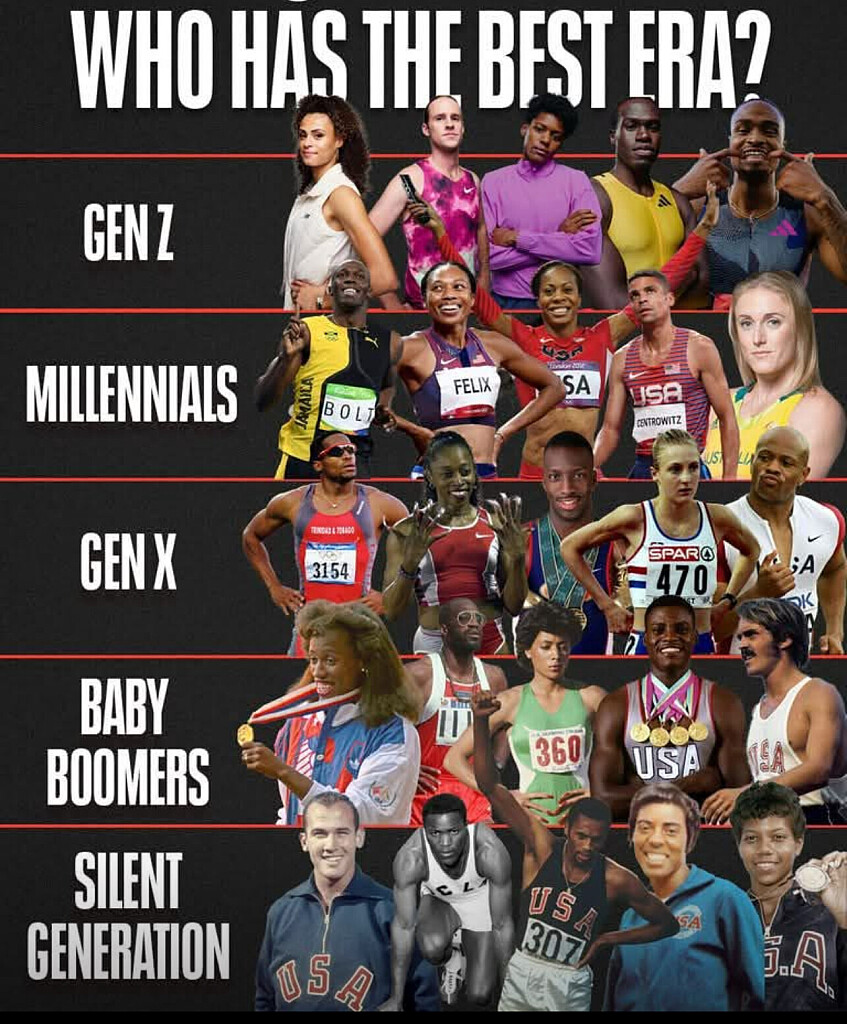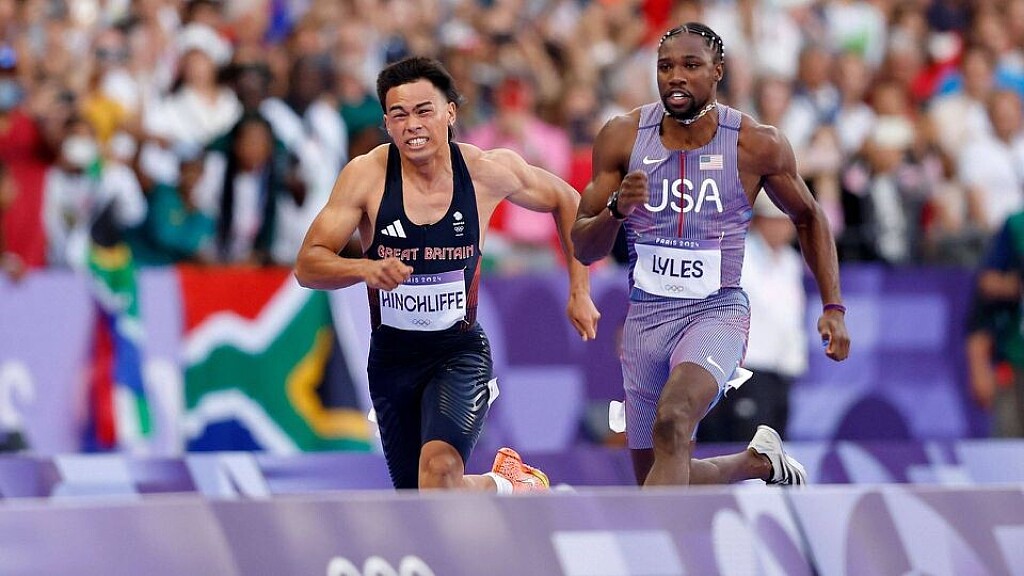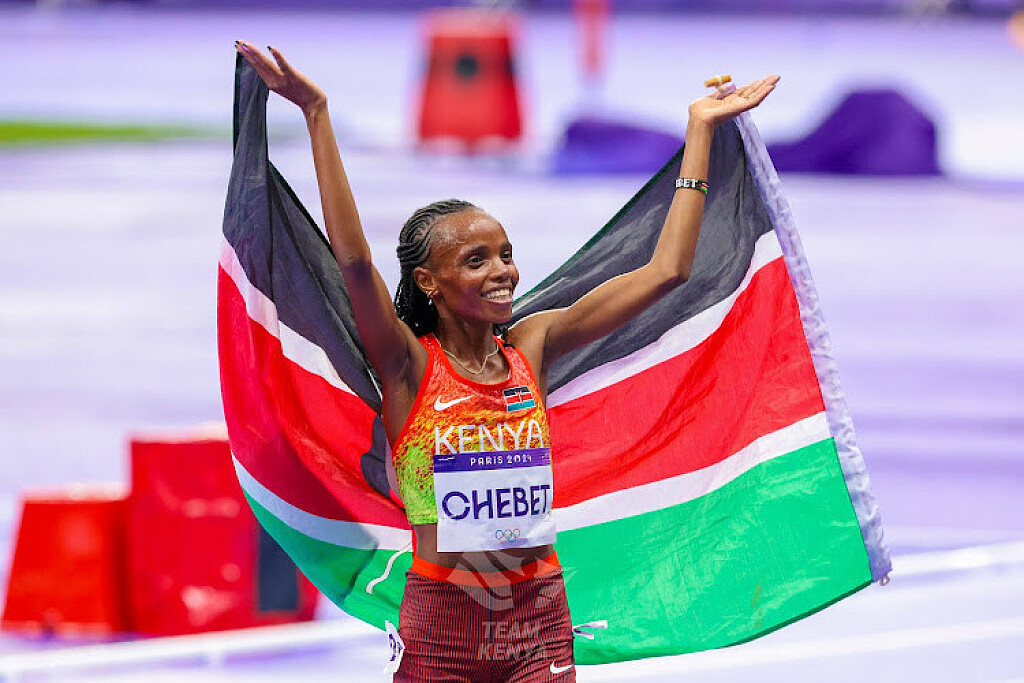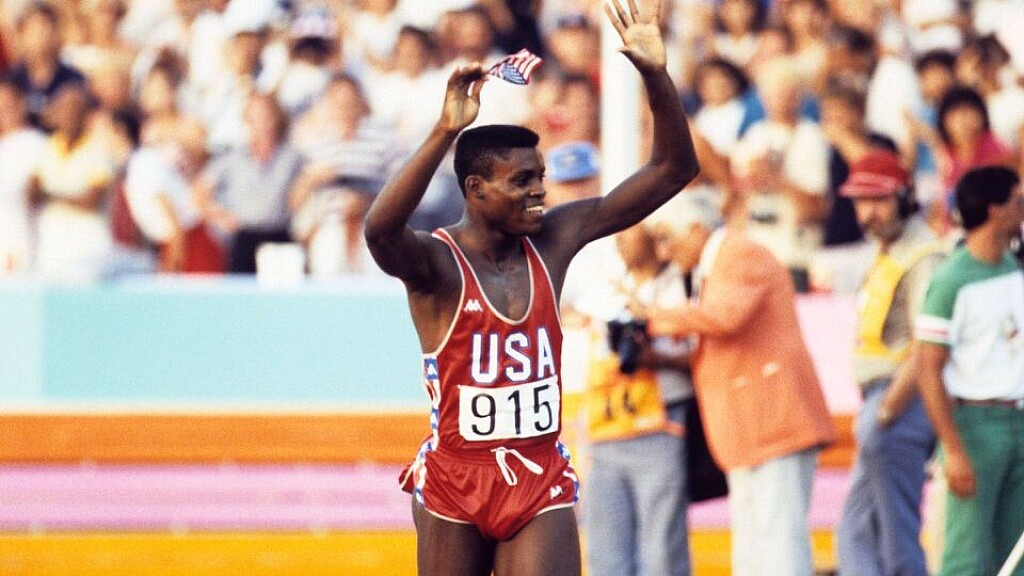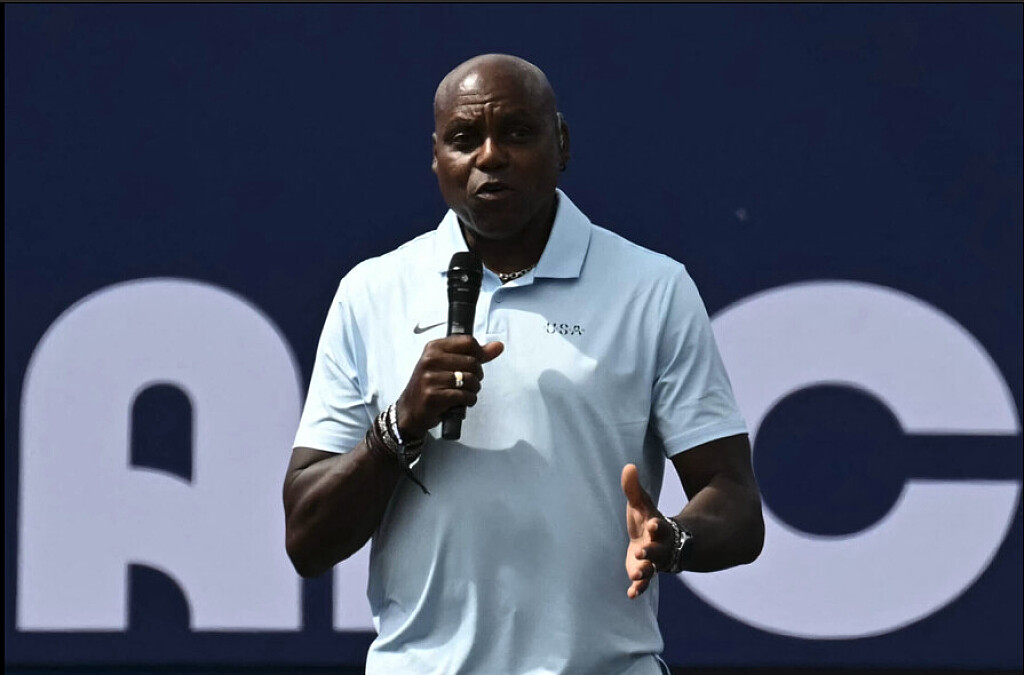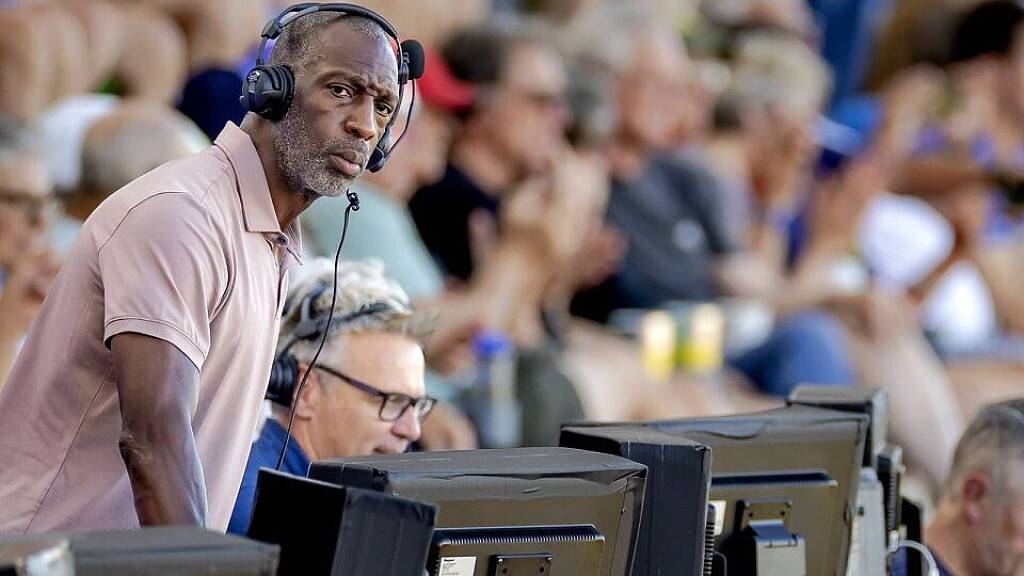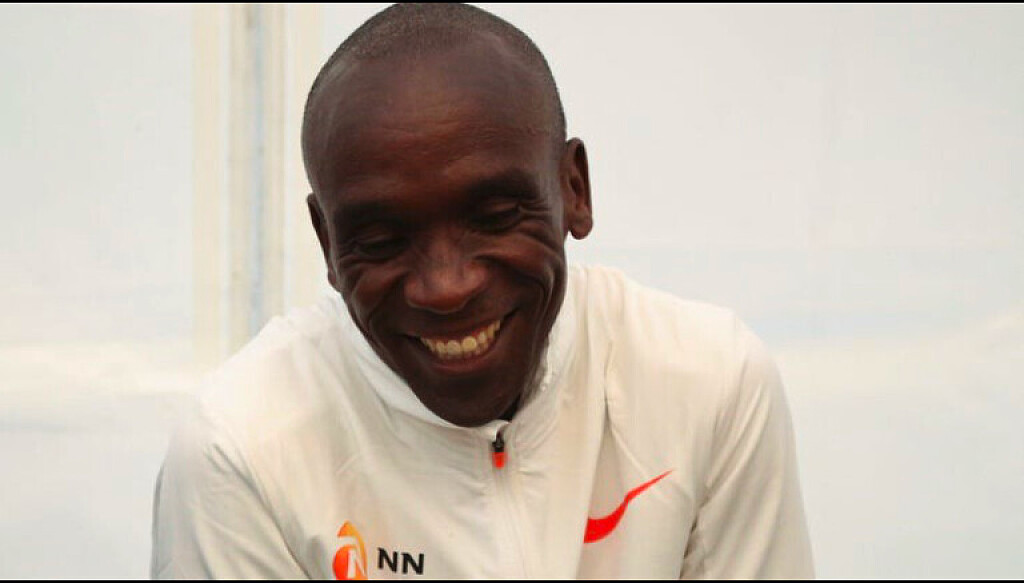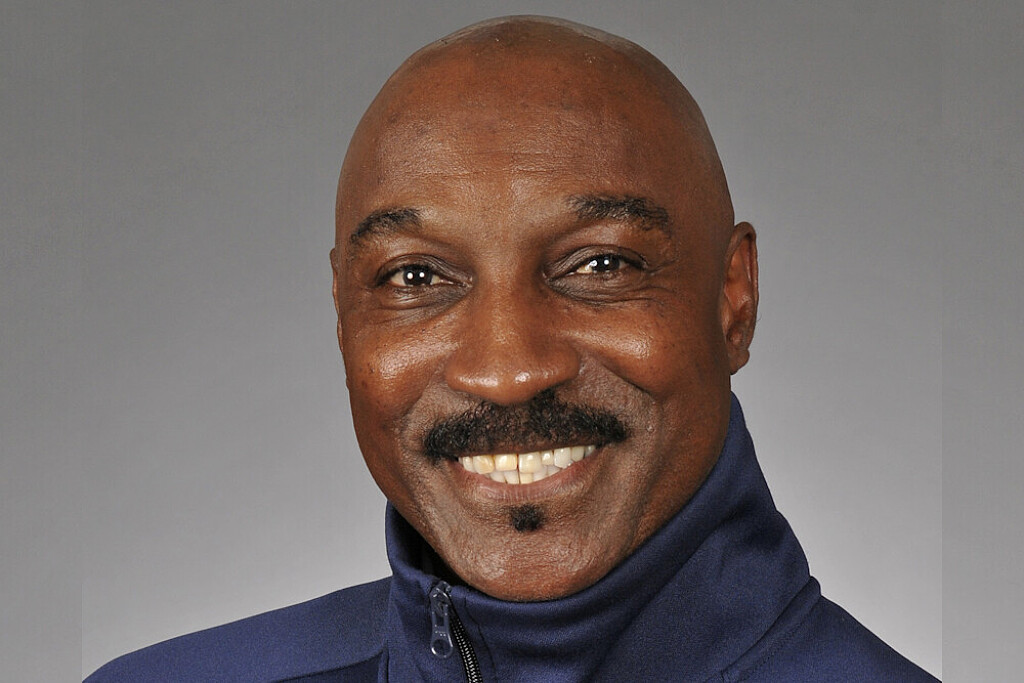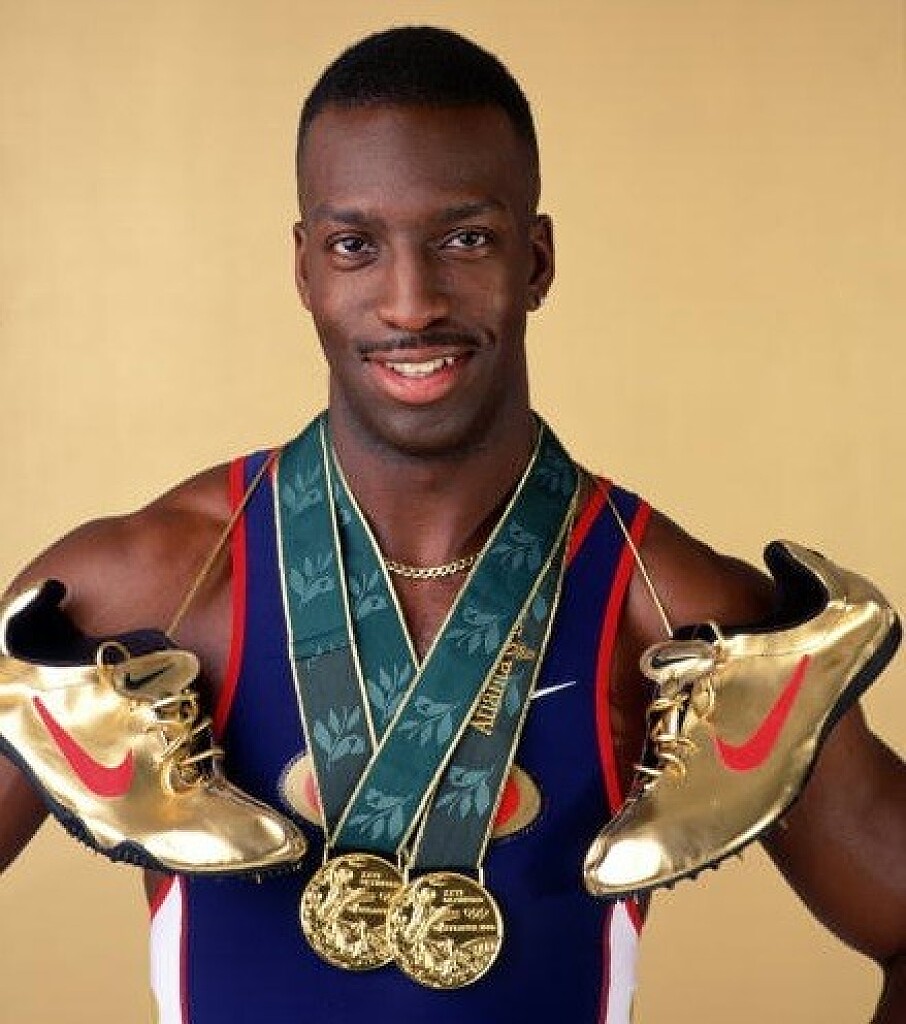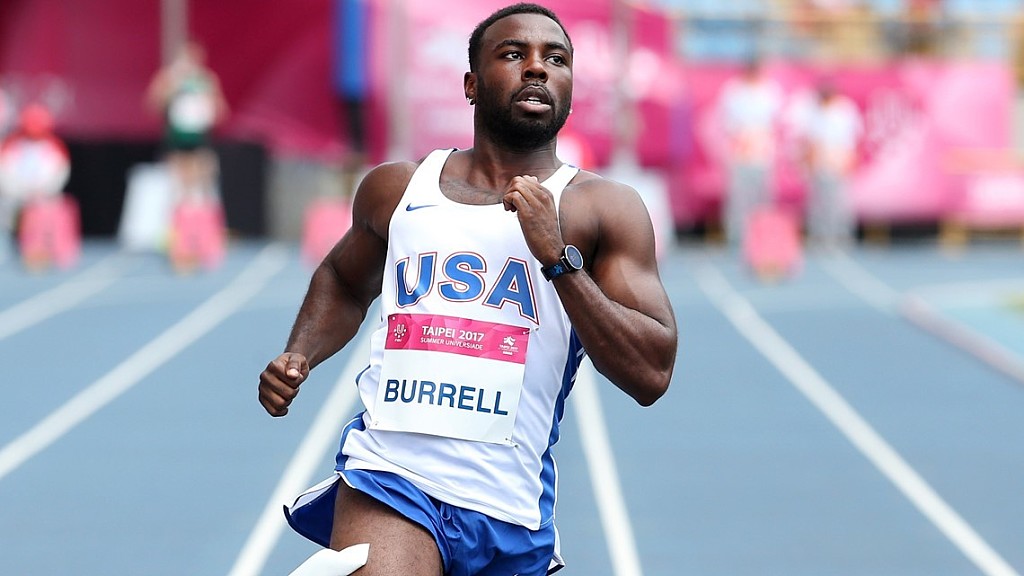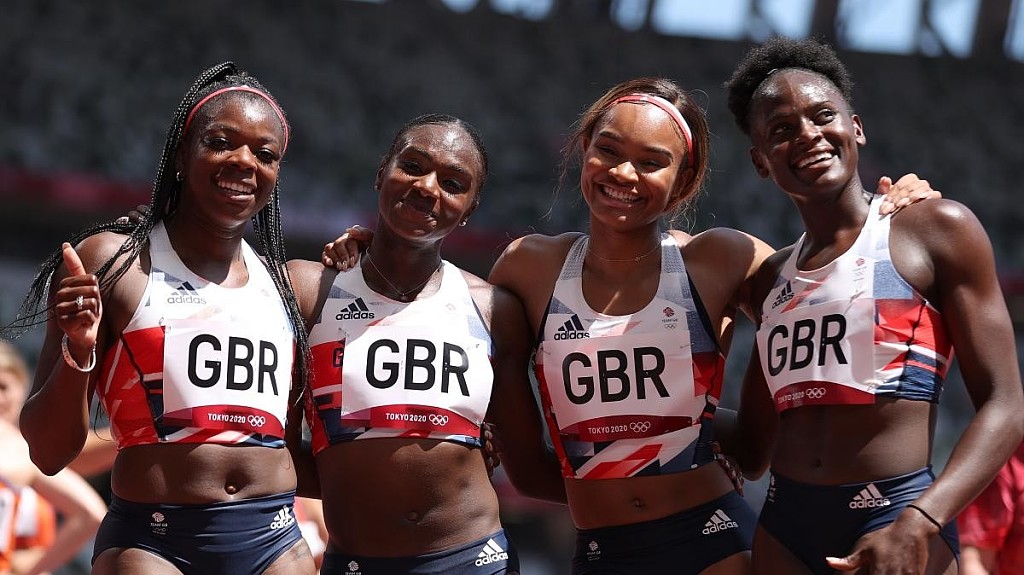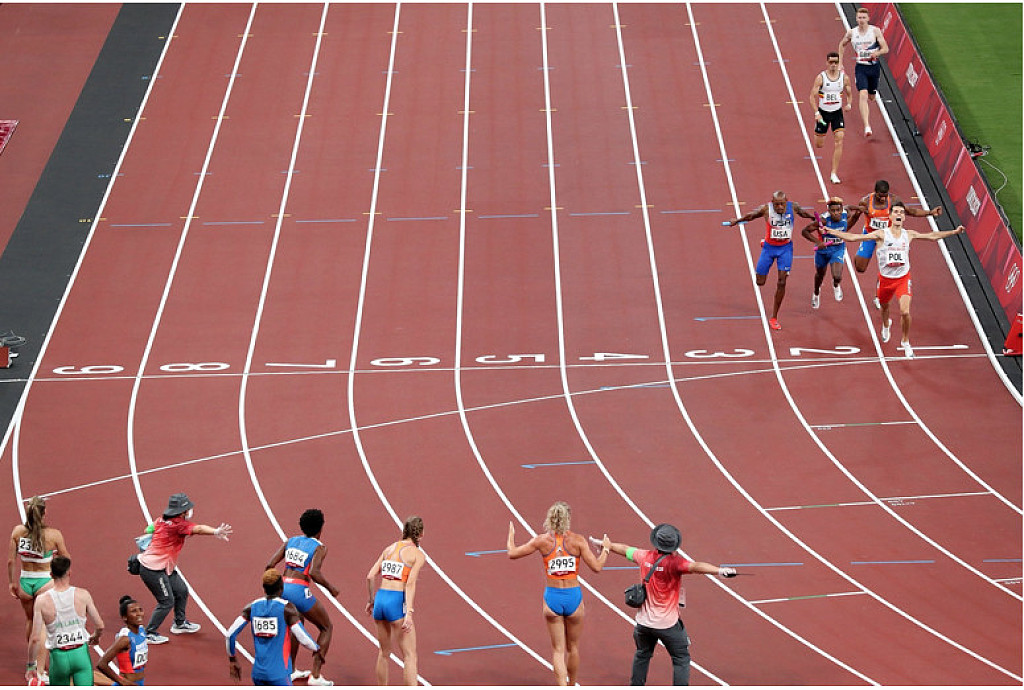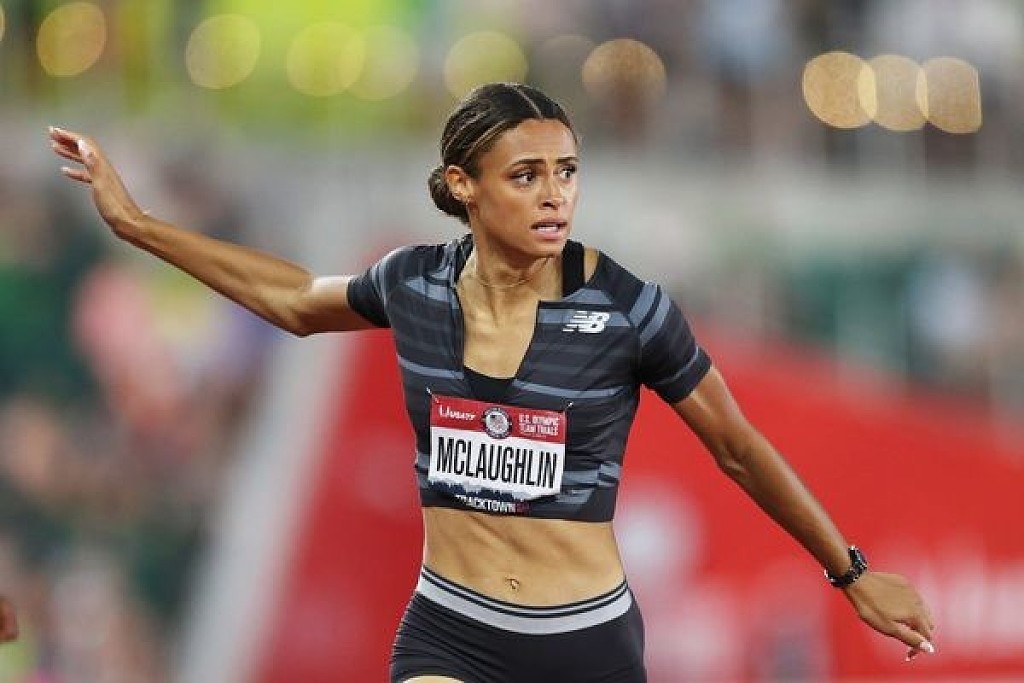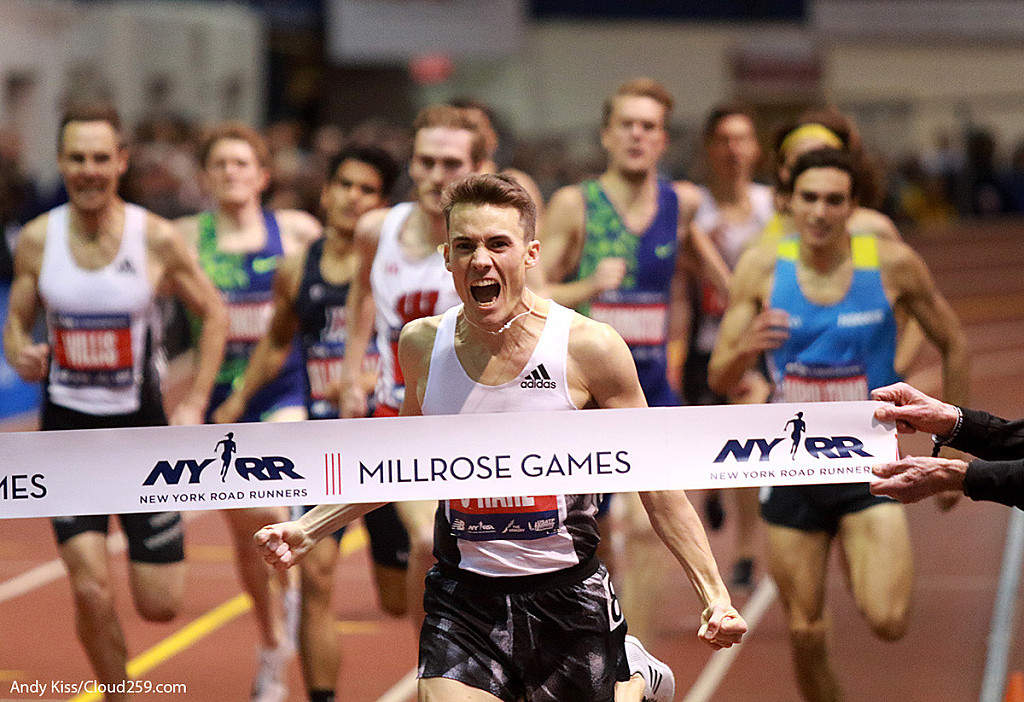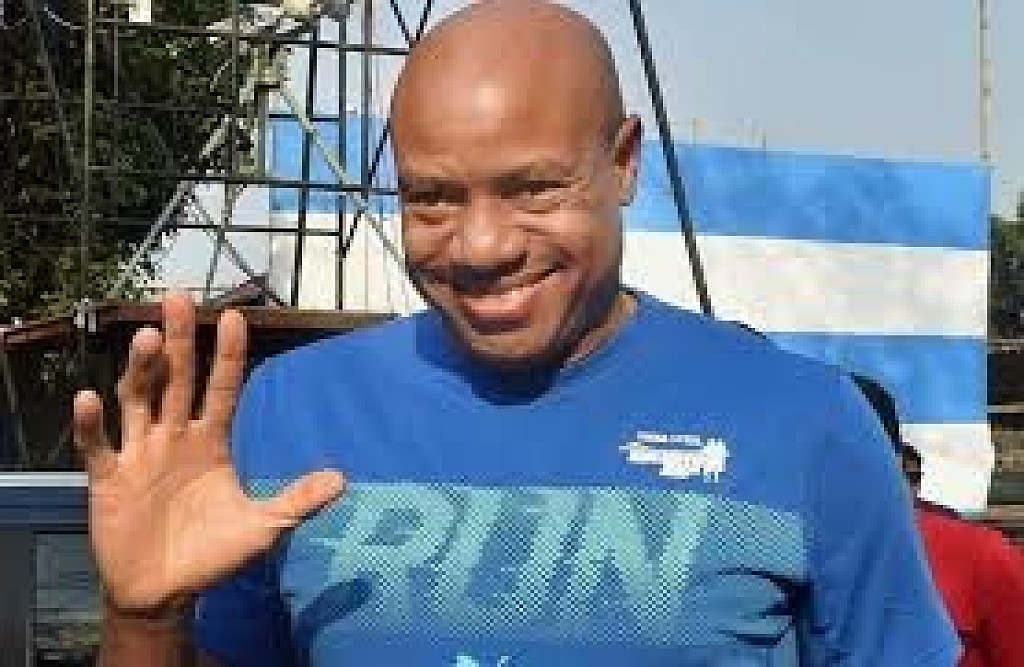Running News Daily
Running News Daily is edited by Bob Anderson. Send your news items to bob@mybestruns.com Advertising opportunities available. Train the Kenyan Way at KATA Kenya and Portugal owned and operated by Bob Anderson. Be sure to catch our movie A Long Run the movie KATA Running Camps and KATA Potato Farms - 31 now open in Kenya! https://kata.ke/
Index to Daily Posts · Sign Up For Updates · Run The World Feed
Articles tagged #Carl Lewis
Today's Running News
Who Had the Best Era in Track & Field? A Generational Showdown
Track and field has long been the stage for some of the most electrifying athletic performances in history. Each generation has produced legends who have redefined what is possible in sprinting, distance running, and field events. But which era stands above the rest?
From the Silent Generation pioneers to the Gen Z record-breakers, every period has contributed to the evolution of the sport. Let’s break down each era’s greatest stars and their lasting impact on track and field.
Gen Z (Born 1997 - 2012): The Future of Track & Field
The newest generation of elite athletes is already making waves on the world stage. With the benefit of cutting-edge training, nutrition, and recovery techniques, these young stars are smashing records at a rapid pace.
Notable Sprinters & Field Athletes:
• Sydney McLaughlin-Levrone (USA) – 400m hurdles world record holder and Olympic champion
• Mondo Duplantis (Sweden) – Pole vault world record holder
• Erriyon Knighton (USA) – One of the fastest teenagers ever in the 200m
Notable Distance Runners:
• Jakob Ingebrigtsen (Norway) – Olympic 1500m champion, European mile record holder
• Joshua Cheptegei (Uganda) – 5000m and 10,000m world record holder
• Jacob Kiplimo (Uganda) – Half marathon world record holder (57:31)
• Gudaf Tsegay (Ethiopia) – World champion in the 1500m, dominant in middle distances
Gen Z athletes are not only breaking records but also shaping the future of the sport through their influence on social media and global visibility. With their combination of speed, endurance, and access to modern sports science, they may soon surpass all who came before them.
Defining Traits: Explosive, record-breaking, tech-savvy
Millennials (Born 1981 - 1996): The Superstars of the Modern Era
No discussion of dominant track and field generations is complete without mentioning Usain Bolt. The Jamaican sprinting legend captured the world’s attention with his charisma and untouchable world records.
Notable Sprinters:
• Usain Bolt (Jamaica) – Fastest man in history (100m: 9.58, 200m: 19.19)
• Allyson Felix (USA) – Most decorated female Olympian in track history
• Shelly-Ann Fraser-Pryce (Jamaica) – One of the most dominant sprinters of all time
Notable Distance Runners:
• Eliud Kipchoge (Kenya) – The greatest marathoner of all time, first to break two hours in a marathon
• Mo Farah (UK) – Dominated the 5000m and 10,000m at two Olympic Games
• Genzebe Dibaba (Ethiopia) – 1500m world record holder
• Ruth Chepngetich (Kenya) – First woman to break the 2:10 barrier in the marathon, setting a world record of 2:09:56 at the 2024 Chicago Marathon
Millennials excelled across all track and field disciplines. They ushered in an era of professional distance running dominance, with African runners setting standards in middle and long distances. Meanwhile, Kipchoge’s sub-2-hour marathon attempt was a historic milestone in human endurance.
Defining Traits: Charismatic, dominant, endurance revolutionaries
Gen X (Born 1965 - 1980): The Tough and Versatile Competitors
Gen X athletes were the bridge between the amateur days of track and the fully professional era. They pushed the sport forward with fierce rivalries and new records, while also seeing the globalization of track and field.
Notable Sprinters:
• Maurice Greene (USA) – Former world record holder in the 100m (9.79)
• Marion Jones (USA) – One of the most dominant sprinters of the late ‘90s
Notable Distance Runners:
• Haile Gebrselassie (Ethiopia) – Olympic and world champion, former marathon world record holder
• Paul Tergat (Kenya) – Pioneered marathon running dominance for Kenya
• Tegla Loroupe (Kenya) – First African woman to hold the marathon world record
This era marked a golden age for distance running, with Gebrselassie and Tergat setting the stage for the marathon revolution that would come in the next generation. With increased sponsorships, the road racing circuit became more competitive, and Kenyan and Ethiopian dominance solidified.
Defining Traits: Tough, globalized, long-distance pioneers
Baby Boomers (Born 1946 - 1964): The Golden Age of Track & Field
The Baby Boomers took track and field into the modern Olympic era, producing some of the most iconic figures in the sport’s history.
Notable Sprinters:
• Carl Lewis (USA) – Nine-time Olympic gold medalist across sprints and long jump
• Florence Griffith-Joyner (USA) – 100m (10.49) and 200m (21.34) world record holder
Notable Distance Runners:
• Sebastian Coe (UK) – 800m and 1500m Olympic champion, middle-distance legend
• Steve Prefontaine (USA) – One of the most influential distance runners in history
• Miruts Yifter (Ethiopia) – 5000m and 10,000m Olympic champion
This era brought middle and long-distance running into the mainstream, with rivalries like Coe vs. Ovett and Prefontaine vs. the world captivating fans. The Baby Boomers were the first generation of professional-level training and saw athletes truly dedicated to their craft year-round.
Defining Traits: Bold, revolutionary, multi-talented
Silent Generation (Born 1928 - 1945): The Pioneers of Kenya’s Dominance
This generation laid the foundation for modern track and field, producing legends whose influence still resonates today.
Notable Distance Runners:
• Kip Keino (Kenya) – The pioneer of Kenya’s dominance in distance running, winning Olympic gold in the 1500m (1968) and 3000m steeplechase (1972)
• Emil Zátopek (Czechoslovakia) – Triple gold in 5000m, 10,000m, and marathon at the 1952 Helsinki Olympics
• Paavo Nurmi (Finland) – Nine-time Olympic gold medalist in long-distance events
Kip Keino’s triumph over Jim Ryun in the 1500m final at the 1968 Mexico City Olympics is considered one of the greatest upsets in Olympic history. Competing at high altitude, Keino used a fast early pace to break Ryun, ushering in an era of Kenyan middle-distance dominance that continues today.
Defining Traits: Groundbreaking, resilient, visionary
Which Generation Had the Greatest Impact?
Each generation of track and field athletes has contributed to the sport’s evolution in unique ways:
• Millennials brought global superstardom (Bolt, Felix, Fraser-Pryce, Kipchoge, Chepngetich)
• Gen X athletes were fierce competitors in a rapidly changing sport (Greene, Gebrselassie, Tergat)
• The Baby Boomers set records that still stand today (Carl Lewis, Flo Jo, Coe, Prefontaine)
• The Silent Generation laid the foundation for modern track and field (Owens, Zátopek, Kip Keino)
• Gen Z is already breaking records and shaping the future of the sport (McLaughlin-Levrone, Ingebrigtsen, Cheptegei)
While it’s hard to declare one era the best, one thing is certain: the sport of track and field continues to evolve, with each generation pushing the limits of human performance.
Which generation do you think is the greatest? Let us know in the comments!
by Boris Baron
Login to leave a comment
50 Motivational Running Quotes About Racing
Find Inspiration from Running Icons and Legends
Even the most motivated among us occasionally has a challenging time wanting to lace up our shoes and hit the pavement running. Bookmark this page for the next time motivation is waning for you. Read on for inspirational race quotes to pump you up before your next run.
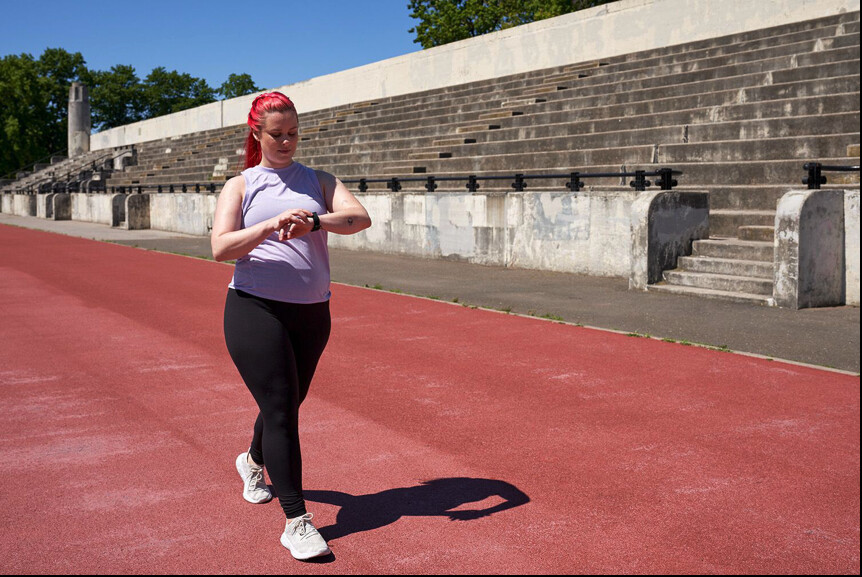
"The miracle isn't that I finished. The miracle is that I had the courage to start." —John Bingham, running speaker and writer
"Fear is gradually replaced by excitement and a simple desire to see what you can do on the day." —Lauren Fleshman, American distance runner
"It doesn't matter whether you come in first, in the middle of the pack, or last. You can say, 'I have finished.' There is a lot of satisfaction in that." —Fred Lebow, co-founder of the New York City Marathon
"When you put yourself on the line in a race and expose yourself to the unknown, you learn things about yourself that are very exciting." —Doris Brown Heritage, women's distance running pioneer
"Good health, peace of mind, being outdoors, camaraderie: those are all wonderful things that come to you when running. But for me, the real pull of running—the proverbial icing on the cake—has always been racing." —Bill Rodgers, winner of four Boston Marathons
"Big occasions and races which have been eagerly anticipated almost to the point of dread, are where great deeds can be accomplished." —Jack Lovelock, environmentalist and futurist
"I also realize that winning doesn't always mean getting first place; it means getting the best out of yourself." —Meb Keflezighi, 2004 Olympic Marathon silver medalist
"Why race? The need to be tested, perhaps; the need to take risks; and the chance to be number one." —George Sheehan, running columnist and writer
RELATED: A Beginner's Guide to Becoming a Runner
"Everyone in life is looking for a certain rush. Racing is where I get mine." —John Trautmann, Olympic runner
"I'm always nervous. If I wasn't nervous, it would be weird. I get the same feeling at all
"My thoughts before a big race are usually pretty simple. I tell myself: 'Get out of the blocks, run your race, stay relaxed. If you run your race, you'll win.'" —Carl Lewis, nine-time Olympic gold champion
RELATED: How to Plan a Running Route Using Map Apps on Your Phone
"I love controlling a race, chewing up an opponent. Let's get down and dirty. Let's fight it out. It's raw, animalistic, with no one to rely on but yourself. There's no better feeling than that." —Adam Goucher, U.S. Nationals 5K race champion
"I'm going to work so that it's a pure guts race at the end, and if it is, I am the only one who can win it." —Steve Prefontaine, legendary American long-distance runner
"Let's just say it and be done with it. Racing hurts. But here's another truth: having put in the effort to prepare for a race and then not giving it your all hurts even more. The first kind of hurt goes away in hours or a day. The second kind of hurt can last a lifetime." —Larry Shapiro, author of Zen and the Art of Running
"Different people have different reasons for racing, but
"Running is in my blood—the adrenaline flows before the races, the love/hate of butterflies in your stomach." —Marcus O'Sullivan, Irish middle-distance runner
"It's just as important to remember that each footstrike carries you forward, not backward. And every time you put on your running shoes you are different in come way than you were the day before. This is all good news." —John Bingham, American marathon runner
"Racing teaches us to challenge ourselves. It teaches us to push beyond where we thought we could go. It helps us to find out what we are made of. This is what we do. This is what it's all about." —PattiSue Plumer, U.S. Olympian
"You didn't beat me. You merely finished in front of me." —Hal Higdon, American writer and runner
"Fast running isn't forced. You have to relax and let the run come out of you." —Desiree Linden
"No marathon gets easier later. The halfway point only marks the end of the beginning." —Joe Henderson, famed running coach
RELATED: Race Day Tips for Running Your First 5K
"No matter how old I get, the race remains one of life's most rewarding experiences." —George Sheehan
"If you feel bad at
"What distinguishes those of us at the starting line from those of us on the couch is that we learn through running to take what the days gives us, what our body will allow us, and what our will can tolerate." —John Bingham, running writer and speaker
"For me, races are the celebration of my training." —Dan Browne, National Champion 5K and 20K runner
"Run when you can, walk if you have to, crawl if you must; just never give up." —Dean Karnazes, ultramarathon runner
"Every race is a question, and I never know until the last yards what the answer will be. That's the lure of racing." —Joe Henderson
"It's amazing how the same pace in practice can feel so much harder than on race day. Stay confident. Trust the process." —Sara Hall, American long-distance runner
"Winning has nothing to do with racing. Most days don't have races anyway. Winning is about struggle and effort and optimism, and never, ever, ever giving up." —Amby Burfoot, American marathon runner
"Your goal is simple: Finish. Experience your first race, don’t race it." —Bob Glover, author of The Runner's Handbook
"Don't dream of winning, train for it!" —Mo Farah, Olympic long
"Nothing, not even pain, lasts forever. If I can just keep putting one foot in front of the other, I will eventually get to the end." —Kim Cowart, runner and journalist
"The real purpose of running isn't to win a race. It's to test the limits of the human heart." —Bill Bowerman, co-founder of Nike
"Our running shoes have magic in them. The power to transform a bad day into a good day; frustration into speed; self-doubt into confidence; chocolate cake into muscle." —Mina Samuels, author of Run Like a Girl
"There is magic in misery. Just ask any runner." —Dean Karnazes
"Run often. Run long. But never outrun your joy of running." —Julie Isphording, American Olympic runner
Login to leave a comment
'The sky's the limit'-Carl Lewis-inspired Louie Hinchliffe turns pro weeks after outrunning Noah Lyles
Carl Lewis protégé Louie Hinchliffe turns pro after stellar collegiate season and beating Noah Lyles in the Olympic 100m Round 1.
Carl Lewis prodigy Louie Hinchliffe has made the bold decision to leave behind his collegiate career at the University of Houston to pursue professional track and field following an impressive debut at the 2024 Paris Olympics.
Hinchliffe's standout performances have not only caught the eye of the athletics world but have also marked a new chapter in his career inspired by none other than his coach and mentor Carl Lewis.
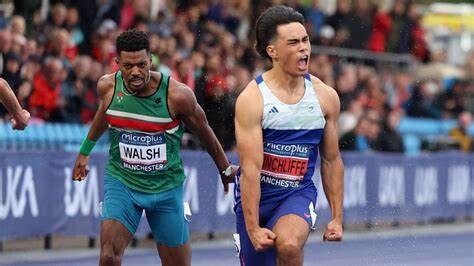
In Paris, Hinchliffe was a key component of Great Britain's bronze medal-winning 4x100m relay team. Despite not advancing to the finals in the 100m event, his times of 9.98s and 9.97s in the heats and semifinals respectively were enough to stir discussions about his future potential in the sport.
“What a season it's been. I've experienced the highest of highs in my first year at the University of Houston. I've become an NCAA champion, a National Champion, and an Olympic Semi-Finalist all whilst living out my dreams as a Cougar," Hinchliffe shared on his Instagram.
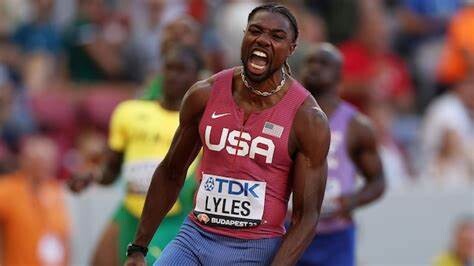
The young sprinter expressed profound gratitude toward his coaches and the staff at the University, signaling the end of his amateur phase with heartfelt thanks.
"With that being said, after speaking with my family, I have decided to forego the remainder of my collegiate eligibility and embark on a career as a professional athlete.”
Hinchliffe's time under Carl Lewis at Houston has been transformational and Lewis has previously noted Hinchliffe's rapid progress but maintained that the young athlete still had much to learn.
"He still has work to do. Obviously, he’s only been here nine months but I think he can definitely be one of the best that Britain’s ever had. He’s run 9.95, he can run faster," Lewis stated.
Under the guidance of Coach Lewis and Director of Track and Field, Will Blackburn, Hinchliffe has developed a foundation that seems poised to support a successful professional career.
“I would like to thank Coach Blackburn & Coach Lewis for your belief and support of me. I hope that someday I can give back as much as you both have given to me. I would like to thank the rest of the coaching staff, operational staff, sports medicine department, and our wonderful student managers,” he added in his statement.
The sprinter's departure from collegiate sports marks the end of an era for the University of Houston, where he not only clinched the NCAA title but also led the team to significant successes.
His performances at the Big 12 Outdoor Track & Field Championship and UK Athletics Championship where he emerged as a national champion, have set high expectations for his professional endeavors.
by Festus Chuma
Login to leave a comment
What next for Kenya after Paris 2024 Olympic Games
The curtains for the 2024 Paris Olympics fell on Sunday night with Kenya ranking 17th in the world after winning 11 medals.
Despite Kenya topping the African continent with 4 gold, 2 silver and 5 bronze medals, the results left a lot to be desired.
From 83 athletes competing in seven disciplines, a significant impact was expected from the Kenyan athletes and the world.
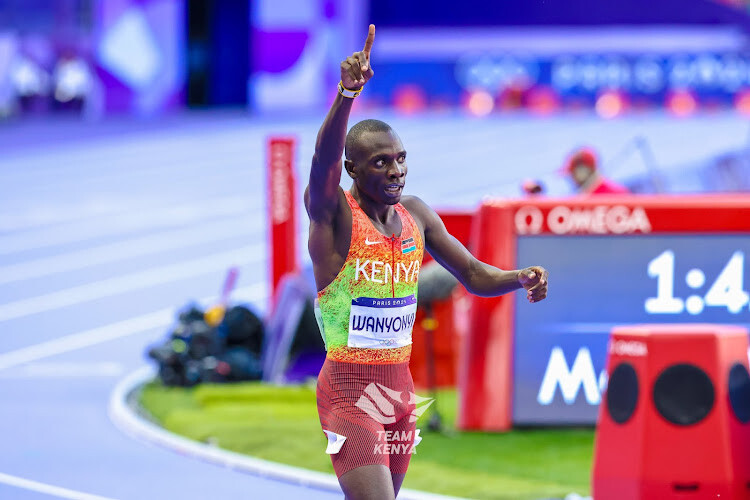
The show started with Judoka Zeddy Cherop falling 10-0 to Portugal’s Patricia Sampao in a record 22 seconds while Fencing African champion Alexandra Ndolo crushed out 13-12 to Ukranian Olena Kryvytska in her debut.
Maria Brunlehner and Ridhwan Mohamed finished 3rd and 4th in the women’s 50m freestyle and Men’s 400m freestyle heats respectively to crush out of contention for a swimming medal.
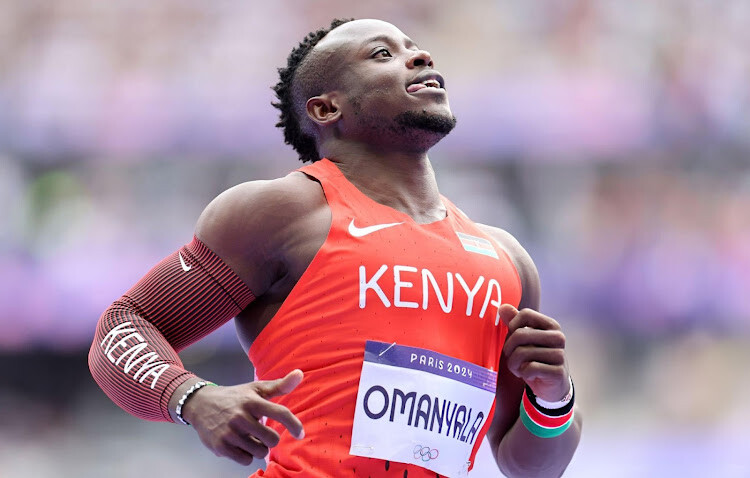
The sevens rugby team also crushed out in the group stage, after going down to Australia, Argentina and Samoa.
The women’s volleyball team booked their next flight after failing to win a single set following three identical 3-0 losses in a tough group B pool comprising Brazil, Poland and Japan.
Paris, the City of Love, had very little affection for Kenya as former world champion Julius Yego, finished a distant 5th in the javelin final with a 87.72m throw, to also bite the dust.
Africa's fastest man, Ferdinand Omanyala's 100m Olympic medal dream was shattered in the semi-finals after clocking 10.08 seconds to finish 8th.
However, Kenya redeemed herself with debutant Beatrice Chebet grabbing double gold in the 5000m and 10000m women’s races.
The best performer was followed closely by Faith Kipyegon who defended her 1500m gold and added the 5000m women’s silver.
Another debutant, Emmanuel Wanyonyi, grabbed the 800m gold, while Ronald Kwemoi struck the men’s 5000m silver.
Mary Moraa, the dancing queen, grabbed the 800m bronze, same as Faith Cherotich (3000m steeplechase) and Abraham Kibiwot (3000m steeplechase).
Hellen Obiri and Benson Kipruto rounded up the bronze tally in the men's and women's marathons.
Obiri failed in her quest for an Olympic medal having won silver in the women's 5000m in Tokyo, 2020 and Rio 2016 games.
History Making
Kenya will however keep pride in making history after Faith Kipyegon became the first woman to complete an Olympic hat trick after breaking her 1500m record in 3:51.29, before a fully packed iconic Stade de France.
Debutant Beatrice Chebet was the best performer entering the history books by winning a double gold in the women's 5000m and 10000m.
The feat makes Chebet the first Kenyan woman to win Olympic 10000m gold for Kenya since the race was introduced in the 1988 Olympics.
She is the third woman after Tirunesh Dibaba and Sifan Hassan to win the 5000m and 10000m double at the Olympic Games.
"I'm dedicating this medal to all Kenyans. I just want to hear my country is proud. This was for you, you were in my mind and heart in every lap; I might have made history but I will sleep better knowing Wananchi wataenjoy the weekend," she said.
Kenya’s legend Eliud Kipchoge failed to complete an Olympic marathon treble after dropping out of the race at the 20km mark.
Kipchoge later confirmed he won’t be running in the Los Angeles 2028 summer games.
“I felt a sharp pain in the stomach and I couldn’t continue. I'm disappointed that for the first time in my career, I failed to finish a race .” Kipchoge said.
Lady luck also smiled on Kenya after Kipyegon's 5000m silver medal was reinstated following an appeal, after a push and shove with Ethiopian nemesis, Gudaf Tsegay, had her initially disqualified.
In the 800m final, Canada appealed against Kenyan winner Emmanuel Wanyonyi's personal best of 1:41.91 in the 800m, claiming he obstructed silver medallist Marco Arop. Kenya won the appeal.
Tokyo 2020
Despite the dismal show in Paris, Kenya had bettered the 2020 Tokyo tally of 10 medals and a 19th spot finish.
The post-Covid games had challenges but Kenya grabbed four gold, four silvers and two bronze medals.
Emmanuel Korir (800m), Faith Kipyegon (1500m), Peres Jepchirhir (marathon), and Eliud Kipchoge (marathon) were the gold medalists while Hellen Obiri (5000m), Fergussin Rotich (800m), Brigid Kosgei (marathon) and Timothy Cheruiyot (1500m) won silver.
Benjamin Kigen and Hyvin Kiyeng won the men's and women's 3000m steeplechase races respectively.
Rio 2016
In the 2016 Rio De Janeiro games, Kenya managed six gold, six silver and one bronze medal for a tally of 13 medals.
Rio 2016 Olympics gold medalists were Jemima Sumgong in women's marathon, David Rudisha in 800m, Faith Kipyegon in 1500m, Conseslus Kipruto in 3000m steeplechase, Vivian Ceruiyot in 5000m and Eliud Kipchoge marathon.
Meanwhile, Vivian Cheruiyot (10000m); Paul Tanui (10000m); Hyvin Kiyeng (3000m steeplechase); Boniface Mucheru (400m hurdles); and Hellen Obiri (5000m) all grabbed silver, while Julius Yego managed a rare javelin silver. Margaret Wambui won bronze in women's 800m.
London 2012
The London 2012 Summer Games saw Kenya manage 2 gold, 4 silver and 7 bronze for a total of 13 medals.
Despite a cold and warm performance in the Queens land, Kenya won two gold medals to finish a distant 29th in the world rankings.
Legendary track masters Ezekiel Kemboi and David Rudisha grabbed gold in the men's 3000m and 800m races respectively.
Sally Kipyegon brought home the women's 10000m silver, while Priscah Jeptoo won the women's marathon silver medal as Vivian Cheruiyot grabbed the women's 5000m race.
Abel Kirui rounded up the silver medals haul after clinching the men’s marathon race.
Vivian Cheruiyot won bronze in the 10000m women's race, while Asbel Kiprop and Milcah Chemos clinched bronze in the men's and women’s 3000m steeplechase.
Timothy Kiptum and Pamela Jelimo clinched the men's and women's 800m race respectively while Thomas Longosiwa and Wilson Kipsang rounded off Kenya's bronze medals haul, winning the 5000m men's and women's marathon races.
What next?
As the nation awaits the Paris 2024 Games report on what worked and what didn't work, a lot will be looked into including preparations, sports science, lack of stadia and lack of funds among others.
However, one constant reminder is that Kenya must smell the coffee, lest our legacy is discarded by the improving rival nations every day.
The next Omanyala, Yego, Obiri and Kipchoge should be nurtured immediately if we are to remain world beaters in the summer games.
Beating the 2008 Beijing Summer Games remains the target, where Kenya sent a total of 46 athletes: 28 men and 18 women who brought home the best tally of six gold, four silver and six bronze medals.
The journey to the Los Angeles 2028 games starts with a new sheriff in town, CS Kipchumba Murkomen, at the helm of the Sports ministry.
by Eric Munene
Login to leave a comment
Paris 2024 Olympic Games
For this historic event, the City of Light is thinking big! Visitors will be able to watch events at top sporting venues in Paris and the Paris region, as well as at emblematic monuments in the capital visited by several millions of tourists each year. The promise of exceptional moments to experience in an exceptional setting! A great way to...
more...Athletes with the most track gold medals in the history of Olympics
Here are the athletes with the most gold medals at the Olympic athletic games
The track and field events continue to capture the imagination of sports fans around the world, at the Olympics in Paris.
While the current athletes compete for glory, it's worth reflecting on the legends who have set the bar exceptionally high in Olympic athletics.
Here’s a look at the athletes with the most gold medals in Olympic track and field history, showcasing their unparalleled achievements and enduring legacies.
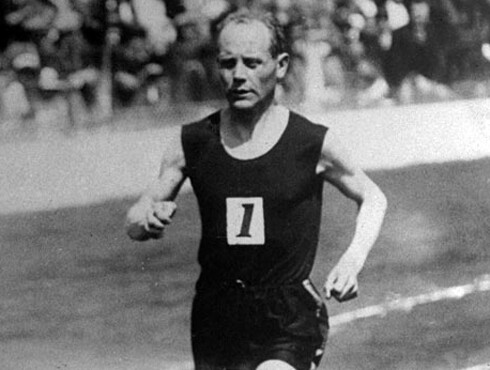
1. Paavo Nurmi (Finland)- 9 Gold medals
Paavo Nurmi, known as "The Phantom Finn," is celebrated for his extraordinary achievements in middle and long-distance running during the 1920s.
Competing in the 1920, 1924, and 1928 Olympics, Nurmi amassed an impressive 12 Olympic medals, including a record nine golds. His incredible versatility was highlighted by his ability to dominate distances ranging from the 1500m to the 20km.
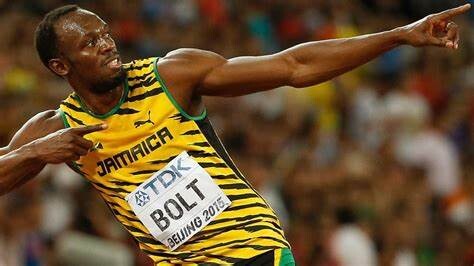
At the 1924 Paris Olympics, Nurmi won a record five gold medals, a feat that remains unmatched to this day.
His career is also marked by his remarkable achievement of setting 22 official world records across various distances.
2. Carl Lewis (U
SA)- 9 Gold medals
American sprinter Carl Lewis is another iconic figure in Olympic athletics, renowned for his dominance in both sprint events and the long jump.
Lewis’s Olympic career spanned from 1984 to 1996, during which he earned a total of 10 medals, including nine golds.
In his debut at the 1984 Los Angeles Olympics, Lewis matched the achievements of Jesse Owens by winning gold in the 100m, 200m, 4x100m relay, and long jump.
His subsequent victories across the 1988, 1992, and 1996 Games solidified his reputation as one of the greatest track and field athletes of all time.
3. Allyson Felix(USA) - 7 Gold medals
Allyson Felix stands as the most decorated female athlete in Olympic track and field history.
Her career, spanning five consecutive Olympics from 2004 to 2020, has seen her win a total of 11 medals.
Felix’s seven gold medals highlight her versatility and dominance in both the individual and relay events.
Felix’s remarkable achievements include gold medals in the 200m and 4x400m relays at the 2012 London Olympics, as well as two more golds in Rio 2016.
Her career continued to shine with additional medals in Tokyo 2020, proving her enduring excellence on the track.
4. Usain Bolt (Jamaica)- 8 Gold medals
Jamaican sprinter Usain Bolt is often hailed as the fastest man in history, and his Olympic success only cements this status.
Bolt’s career is highlighted by his three consecutive Olympic gold medals in the 100m, 200m, and 4x100m relay events at the 2008 Beijing, 2012 London, and 2016 Rio Games.
Bolt’s unprecedented triple-double achievements and world records in these events have set a benchmark in the sport.
His flair, speed, and charismatic performances have made him a global icon in athletics.
5. Shelly-Ann Fraser-Pryce (Jamaica)- 3 Gold medals
Jamaican sprinter Shelly-Ann Fraser-Pryce is another prominent name in Olympic athletics.
Known for her explosive starts and exceptional speed, Fraser-Pryce has won three gold medals in the 100m across the 2008 Beijing, 2012 London, and 2024 Paris Olympics.
Her ability to consistently perform at the highest level across four Olympics showcases her remarkable career.
These legendary athletes have not only achieved remarkable success but have also set records that continue to inspire future generations of track and field competitors.
From Paavo Nurmi’s unmatched versatility to Usain Bolt’s record-breaking sprints, their contributions to the sport have shaped the history of the Olympics and continue to captivate the world.
by Eric Munene
Login to leave a comment
Paris 2024 Olympic Games
For this historic event, the City of Light is thinking big! Visitors will be able to watch events at top sporting venues in Paris and the Paris region, as well as at emblematic monuments in the capital visited by several millions of tourists each year. The promise of exceptional moments to experience in an exceptional setting! A great way to...
more...Carl Lewis sounds off on 'unacceptable' U.S. men's 4×100 relay flub: 'Time to blow up the system'
After the U.S. men’s 4×100 relay team botched a baton handoff that led to their disqualification in Friday’s Olympic final, track and field legend Carl Lewis labeled the performance “completely unacceptable” as he called for an overhaul of the USA Track and Field program.
“It is time to blow up the system,” Lewis, a nine-time Olympic gold medalist, posted on X on Friday. “This continues to be completely unacceptable. It is clear that EVERYONE at [USA Track and Field] is more concerned with relationships than winning. No athlete should step on the track and run another relay until this program is changed from top to bottom.”U.S. athletes Christian Coleman and teammate Kenny Bednarek collided during the first exchange, which was deemed to have taken place outside the exchange zone and led to the team’s disqualification. The disastrous handoff put the Americans significantly behind, and the team — which also included Kyree King and Fred Kerley — finished seventh before being DQ’d.Canada won gold while South Africa took silver and Great Britain claimed bronze.
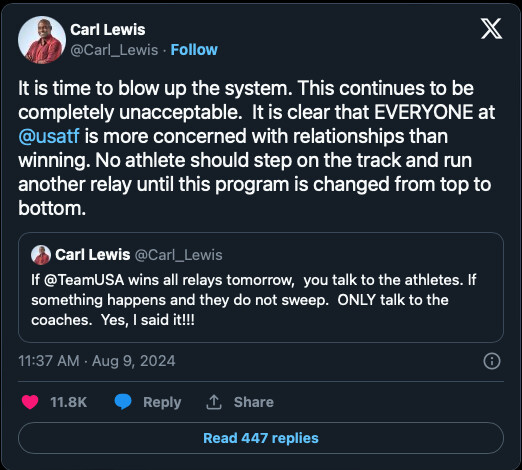

The United States, meanwhile, failed to earn a medal in the event for the fifth consecutive Olympics despite entering as the presumed favorites. They were the fastest qualifiers and the U.S. took gold in its last major international meet at the 2023 World Championships.
“Obviously, it’s a little disappointing, especially for America,” Coleman said after the race. “We wanted to bring it home. We knew we had the speed to do it.The United States has not won a medal in the men’s 4×100 relay since 2004, when Shawn Crawford, Justin Gatlin, Coby Miller and Maurice Greene won silver at the Athens Olympics. Team USA’s last Olympic gold in the event was in 2000 with Jon Drummond, Bernard Williams, Brian Lewis and Greene.
Lewis posted on X ahead of the race suggesting the coaches should be held responsible if the U.S. failed to medal.
“If [Team USA] wins all relays tomorrow, you talk to the athletes,” he wrote on X on Thursday. “If something happens and they do not sweep. ONLY talk to the coaches. Yes, I said it!!!”
The U.S. women, with Sha’Carri Richardson as the anchor, won gold in the 4×100 relay on Friday at Stade de France. It was the United States women’s 12th Olympic gold medal in the event.
Login to leave a comment
American legend Michael Johnson shares how athletes can change the sport and earn more from it
The former 200m and 400m world and Olympic record holder has offered an advise to athletes on how they can change the sport for the better after years of earning low amounts
American sprint legend Michael Johnson has advised prominent athletes to lead from the front if they have to change the status of athletics and earn more from it.
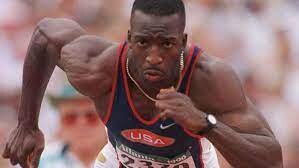
Johnson, who has been vocal about the ‘low amounts’ athletes earn from various events, shared how he had to ensure he earned what he deserved against strong resistance and thinks athletes are currently getting the short end of the stick because they do not speak out.
“My first exposure to pro track was Summer 1989 competing in Europe while still a college athlete,” Johnson pointed out on X.
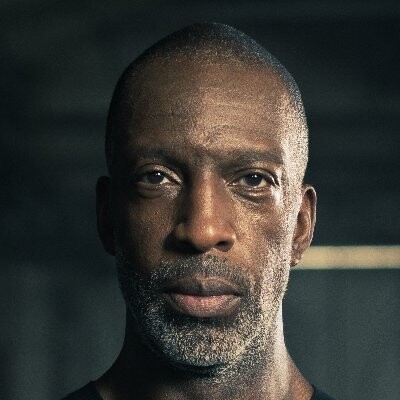
“Remember seeing Carl Lewis treated much better than everyone else. 1990 my first year as a pro I’m the top athlete in the sport. My appearance fee was skyrocketing and I’m being paid literally in cash. Customs was stressful! Had to eventually force meets to wire my funds.”
Johnson then explained how he had to fight to get paid in cash when IAAF (now World Athletics) decided to reward athletes cars for winning at the World Championships.
“1993 IAAF (World Athletics) finally decide to offer a prize for winning World Champs. But not cash. A Mercedes 190 ($30K value). Myself, Butch Reynolds, Mike Powell, Gwen Torrance, and Mike Conley tried to organize a boycott if they didn’t offer cash,” he added.
“Many athletes refused and wanted the car. So, my agent and I negotiated my own deal. After ‘96 I’m a global superstar and meets allow their sponsors kids access to the warmup area to ask me for autographs while I’m warming up and preparing to race.
“Had to ask them to stop it and organize proper autograph sessions for me to meet fans. One meet organizer tried to shame me in the media saying I didn’t appreciate fans.”
The former 200m and 400m world and Olympic record holder went on about how he, Carl Lewis and Usain Bolt forced the sport to change for them to earn what is right, something he feels the current crop of athletes can realize if they speak out strongly.
“My fee kept rising. Meets colluded and agreed none would pay me above $100K. They each violated their own agreement. Carl before me did his own thing, I did mine, and Bolt did his thing,” said Johnson.
“Each of [us] forced the sport to change for us, but neither of us were able to change the sport. Until a critical mass of prominent athletes work together there will be no change.”
Johnson has been a critic of World Athletics and the amounts they pay athletes from various competitions, saying not much has changed since he started running three decades ago.
by Joel Omotto
Login to leave a comment
When Will Eliud Kipchoge Slow Down?
What we can learn from the world’s greatest distance runner of all-time while he’s still in his prime
Eliud Kipchoge has expanded the universe of what’s humanly possible in the marathon, and he will forever remain a legend in the sport of long-distance running.
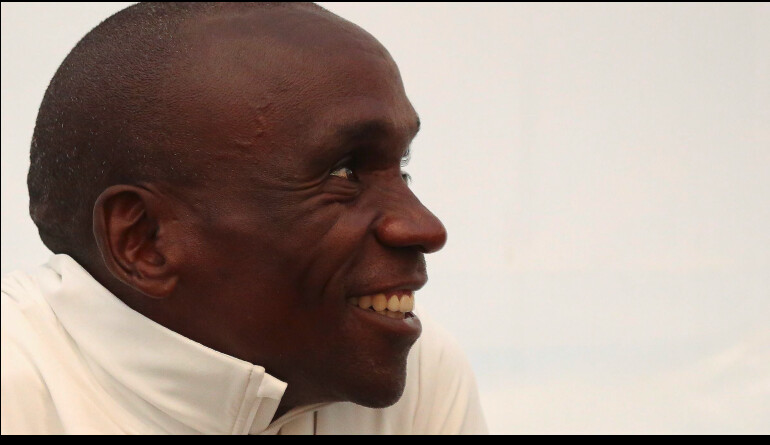
Not only for himself, but especially for those who have come after him. That includes everyone, both elite and recreational runners, who are preparing a marathon this fall or some distant point in the future. His current 2:01:09 world record and his barrier-breaking 1:59:40 time-trial effort in 2019 are legendary feats, both for the current generation of runners and for all time.
The 38-year-old Kenyan marathoner is a once-in-a-lifetime athlete, but time waits for no one, and especially not a long-distance runner. Like all elite athletes, his time at the top is limited, but fortunately, there is still time to immerse in the inspirational examples he’s providing.
Kipchoge recently announced he’ll return to the Berlin Marathon on September 24, where, last year, he won the race for the fourth time and lowered the world record for the second time. It is most likely what will be the beginning of a grand denouement as he goes for another gold medal at the 2024 Olympics next summer in Paris.
Given that he won his first global medal in the City of Light—when, at the age of 18, he outran Moroccan legend Hicham El Guerrouj and Ethiopian legend-in-the-making Kenenisa Bekele to win the 5,000-meter run at the 2003 world championships—it would certainly be one of the greatest stories ever told if he could win the Olympic marathon there next year when he’s nearly 40.
Certainly he’ll run a few more races after the Olympics—and maybe through the 2028 Olympics in Los Angeles—but, realistically, it is the start of a farewell tour for a runner who will never be forgotten.
Don’t get me wrong: I’m not at all writing Kipchoge off. In fact, I am excited to see him run in Berlin and can’t wait to watch next year’s Olympic marathon unfold. But just as we’ve watched Michael Jordan, Tiger Woods, Serena Williams, Shalane Flanagan, Usain Bolt, Allyson Felix, and other elite athletes succumb to the sunsetting of their peak performance level, so too will Kipchoge eventually suffer the same fate.
What I’m saying here is that we still have time to watch and appreciate Kipchoge eloquently working his magic and continue to be inspired in our own running and other pursuits in life. Remember how we marveled at Michael Jordan’s greatest in “The Last Dance” more than 20 years after his heyday? This is the start of the last dance for Kipchoge, who, like Jordan, is much, much more than a generational talent; he’s an all-time great whose legacy will transcend time.
Running has seen many extraordinary stars in the past 50 years who have become iconic figures— Frank Shorter, Joan Benoit Samuelson, Ted Corbitt, Carl Lewis, Steve Jones, Paul Tergat, Catherine Ndereba, Paula Radcliffe, Haile Gebrselassie, Kenenisa Bekele, Mary Keitany, Brigid Kosgei, and Kilian Jornet, to name a few—but none have come close to the body of work and global influence of Kipchoge.
Not only is Kipchoge one of the first African athletes to become a household name and truly command a global audience, but he’s done more than other running champions because of he’s been able to take advantage of this advanced age of digital media to deliberately push positive messages and inspiring content to anyone who is willing to receive it.
Kipchoge has won two Olympic gold medals, set two world records, and won 17 of the 19 marathons he entered, but he’s so much less about the stats and bling and more sharing—to runners and non-runners alike—that “no human is limited” and also that, despite our differences, we’re all human beings faced with a lot of the same challenges in life and, ultimately, hard work and kindness are what put us on the path to success.
How can an average runner who works a nine-to-five job and juggles dozens of other things in daily life be inspired by an elite aerobic machine like Kipchoge?
He is supremely talented, no doubt, but many elite runners have a similar aerobic capacity to allow them to compete on the world stage. What Kipchoge uniquely possesses—and why he’s become the greatest of all-time—is the awareness and ability to be relentless in his pursuit of excellence, and the presence and good will of how beneficial it is to share it.
If you haven’t been following Kipchoge or heard him speak at press conferences or sponsor events, he’s full of genuine wisdom and encouragement that can inspire you in your own running or challenging situation in life. His words come across much more powerfully than most other elite athletes or run-of-the-mill social media influencers, not only because he’s achieved at a higher level than anyone ever has, but because of his genuine interest in sharing the notion that it’s the simplest values—discipline, hard work, consistency, and selflessness—that make the difference in any endeavor.
This is not a suggestion to idolize Kipchoge, but instead to apply his wisdom and determination into the things that challenge you.
“If you want to break through, your mind should be able to control your body. Your mind should be a part of your fitness.”
“Only the disciplined ones in life are free. If you are undisciplined, you are a slave to your moods and your passions.”
“If you believe in something and put it in your mind and heart, it can be realized.”
“The best time to plant a tree was 25 years ago. The second-best time to plant a tree is today.”
Those are among the many simple messages that Kipchoge has lived by, but he also openly professess to giving himself grace to take time for mental and physical rest and recovery. It’s a simple recipe to follow, if you’re chasing your first or fastest marathon, or any tall task in life.
Kipchoge seems to defy age, but his sixth-place finish in the Boston Marathon in April proved he’s human. As much as it was painful to watch him falter, it was oddly refreshing and relatable to see him be something less than exceptional, and especially now that he’s tuning up for Berlin. He has nothing left to prove—to himself, to runners, to the world—but he’s bound to keep doing so just by following the same simple, undaunted regimen he always has.
There will be other young runners who will rise and run faster than Kipchoge and probably very soon. Fellow Kenyan Kelvin Kiptum—who has run 2:01:53 (Valencia) and 2:01:25 (London) in his first two marathons since December—seems to be next in line for Kipchoge’s throne of the world’s greatest runner. But even after that happens, Kipchoge’s name will go down in history alongside the likes of Paavo Nurmi, Abebe Bikila, Emil Zátopek, Grete Waitz, Shorter and Samuelson because of how he changed running and how he gave us a lens to view running without limits.
Berlin is definitely not the end of Kipchoge’s amazing career as the world’s greatest long-distance runner. I fully expect him to win again in an unfathomable time. But the sunset is imminent and, no matter if you are or have ever been an aspiring elite athlete at any level, a committed recreational runner, or just an occasional jogger trying to reap the fruits of consistent exercise, his example is still very tangible and something to behold.
by Outside Online
Login to leave a comment
Olympic gold medalist and top coach Harvey Glance dies at age 66
Former American sprinter and international coach Harvey Glance, who helped to propel Grenada's Kirani James to world and Olympic glory, has died at the age of 66 after suffering a cardiac arrest.
Tributes are being paid to the three-time Olympian and Olympic gold medalist following his death on Monday (June 12).
Glance underlined his talents at the Auburn University in the United States where he achieved four sprint National Collegiate Athletics Association titles.
He won the 100 meters gold at the US Olympic Trials in Eugene to secure his place on the team for the Montreal 1976 Olympics.
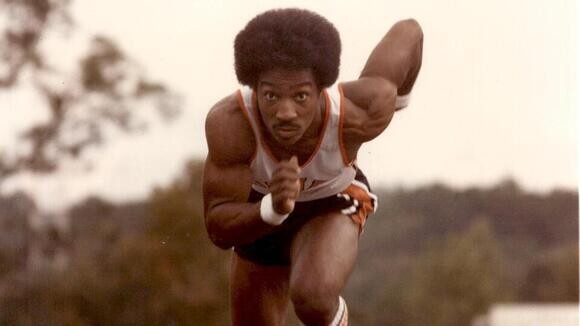
After finishing fourth in the 100m final, Glance teamed up with Johnny Jones, Millard Hampton and Steve Riddick to win the men’s 4x100m title.
Glance claimed 100m silver and 4x100m gold at San Juan 1979 Pan American Games.
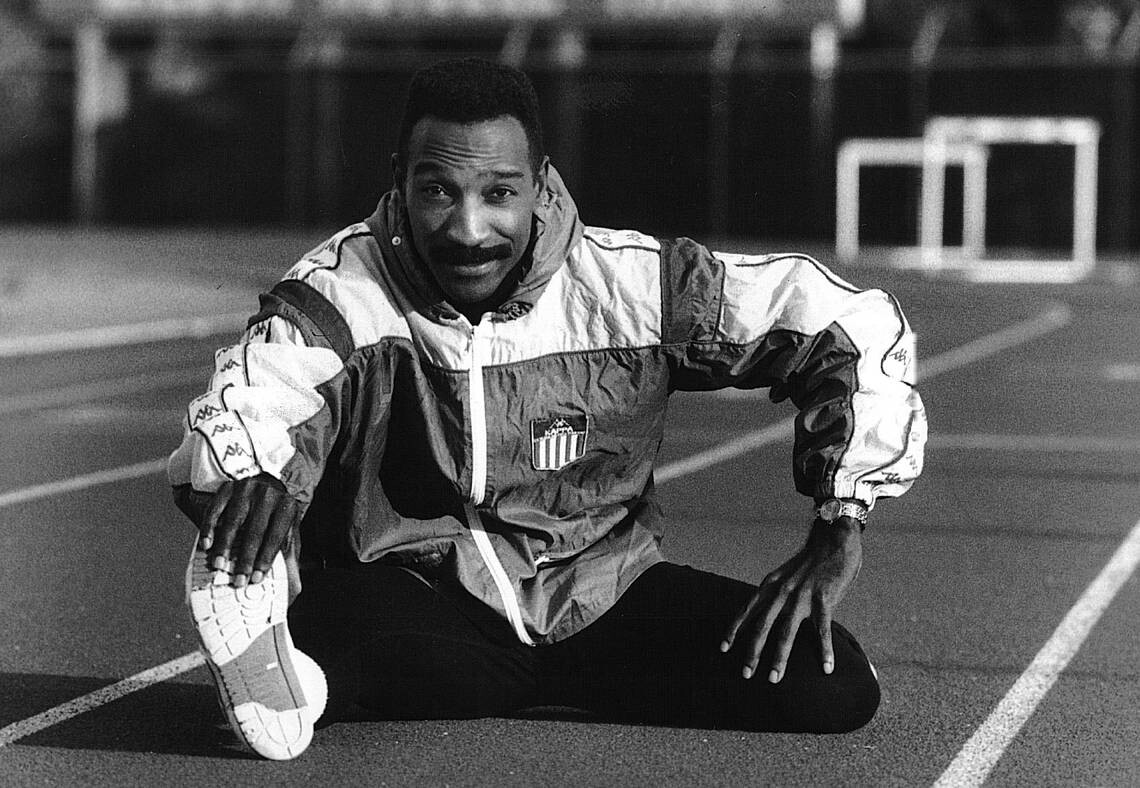
He won his first world gold in 1987 when he linked up with Lee McRae, Lee McNeill and Carl Lewis to be crowned 4x100m champions before securing another Pan American Games 4x100m title in Indianapolis that same year.
His coaching career began at Auburn University, first as assistant coach before stepping up to become head coach.
In 1997, Glance became head coach at the University of Alabama where he worked with several top athletics including James.
He was notably the men's assistant coach for sprints and hurdles at the Beijing 2008 Olympics and head men's coach at the 2009 World Championships in Berlin.
After retiring from the University of Alabama, Glance continued to coach James, who claimed the world 400m crown in 2011, the Olympic 400m title at London 2012 and achieved further global medals in the one-lap event between 2015 and 2022.
Grenada’s Minister for Youth, Sports and Culture Ron Redhead was among those to pay tribute to Glance.
"I extend heartfelt condolences to the family, colleagues to the family, colleagues and friends of Mr Harvey Glance, one of our top-ranked athletic coaches, whose untimely passing has truly shocked the entire sporting fraternity," said Redhead.
"Mr Glance displayed the highest level of sportsmanship in coaching athletic greats such as our Olympic champion Kirani James and many other athletes across the globe.
"On behalf of the Ministry of Education, Youth, Sports, and Culture, I offer deepest sympathy to all his loved ones, and I pray that the almighty comforts you in this time of grief and immeasurable loss."
Alabama track and field head coach Dan Waters said Glance had "left a lasting mark" on university's athletics programme and described him as a "true legend in the sport".
"He impacted so many people in the track world, and his spirit will always live with us," added Waters.
"He was such a charismatic person and always left a positive impact on everyone he encountered over the years."
by Geoff Berkeley
Login to leave a comment
Michael Johnson's iconic gold spikes join the Heritage Collection
To mark the 226th World Athletics Council Meeting in Monaco, a special Heritage display was staged this week in the foyer of Le Meridien Beach Plaza. The exhibit contained 15 recent acquisitions made by the World Athletics Heritage Collection, which will soon be on display in glorious 3D in the virtual Museum of World Athletics (MOWA).
One of the oldest artefacts exhibited was a solid silver trophy donated by Kenya’s Olympic legend Kipchoge Keino, and one of the youngest items on show was a Tokyo 2020 Olympic Torch.
Yet arguably the greatest recent addition to the collection are three running spikes worn by eight-time world champion and four-time Olympic Games gold medalist Michael Johnson.
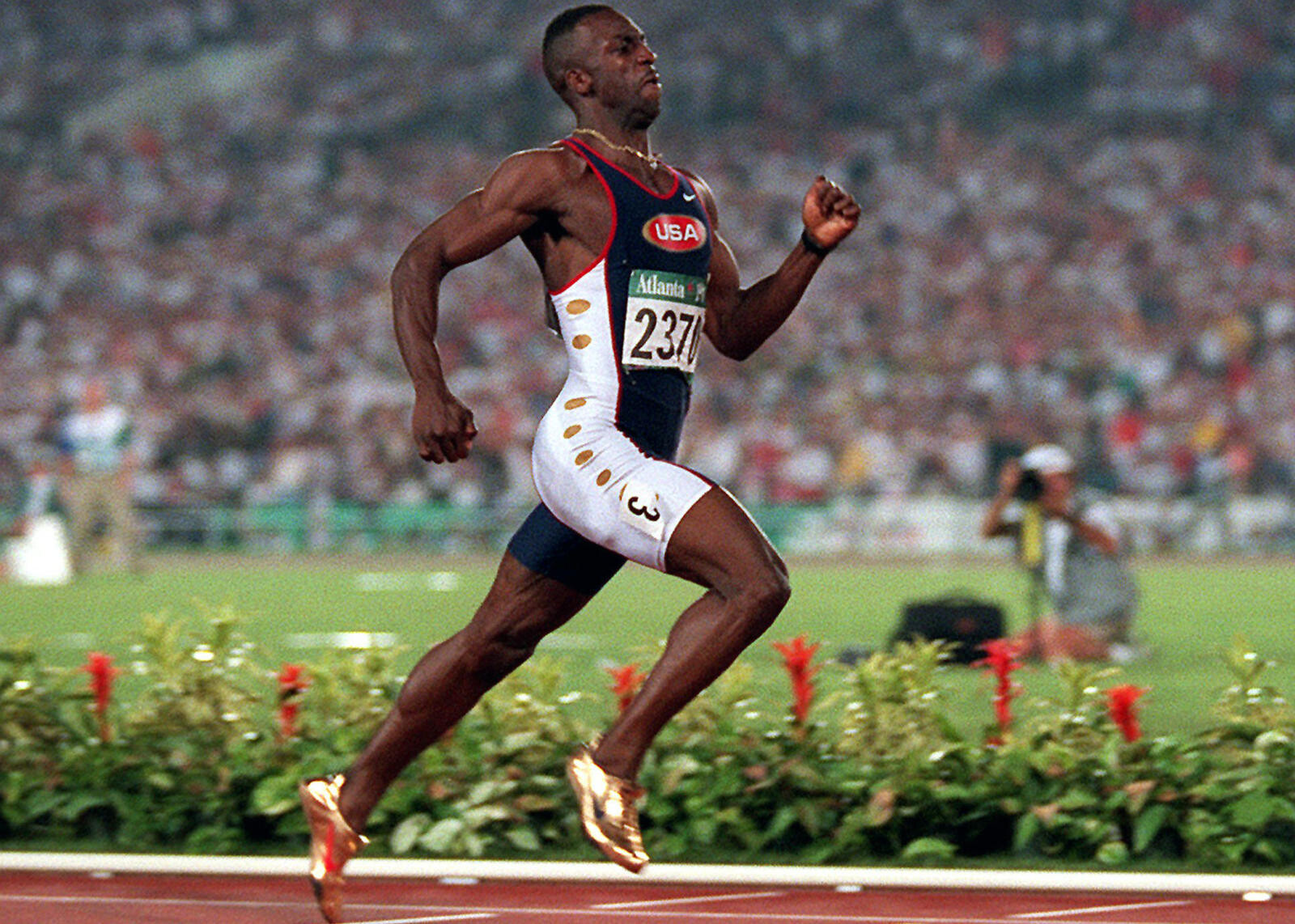
Entering the collection is one of Johnson’s iconic gold spikes from Atlanta 1996 (right foot), one from Sydney 2000 (left foot), and thirdly, a shoe from Johnson’s final race in 2001 (right foot). Each shoe is autographed.
“I can still vividly remember the chills I felt…”
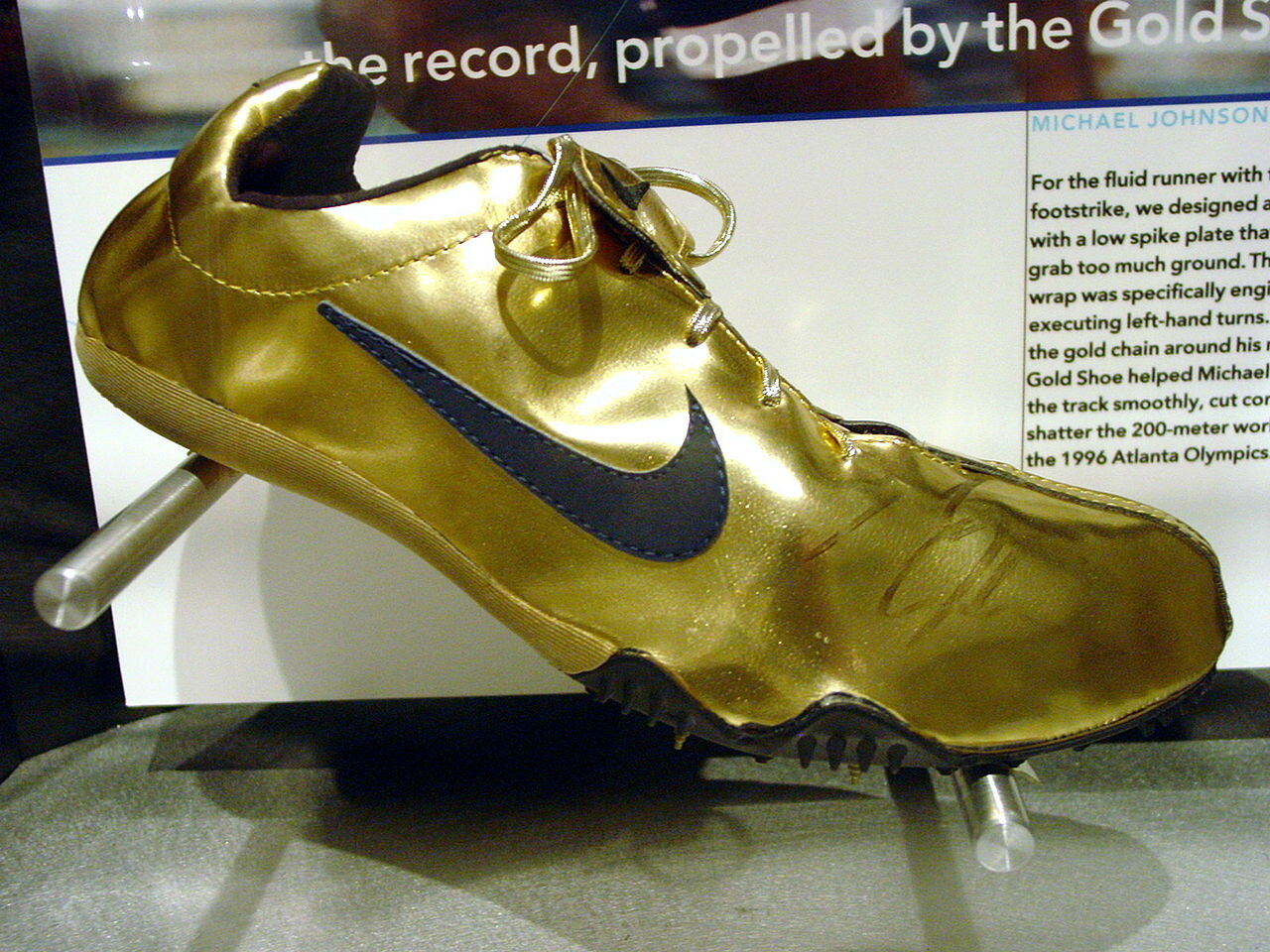
The trio now form part of the World Athletics Heritage Collection thanks the extraordinary generosity of Brad Hunt, who was Johnson’s agent during his outstanding running career.
“I visited the Heritage exhibition while at the 2019 World Athletics Championships in Doha,” commented Hunt. “The scale of the collection was particularly impressive, considering it had only been created in 2018.
“The historic display of artefacts included items from the careers of Jesse Owens, Carl Lewis and Usain Bolt. In men’s sprinting history, there was one glaring omission. By offering the spikes which Michael (Johnson) gave me after some of his most memorable races, I hope to have helped fill that gap in the World Athletics Heritage Collection,” added Hunt.
Johnson stunned the world of sport in 1996. At the Atlanta Games he won an unprecedented Olympic men’s 200m and 400m double. In the process, with a 19.32 clocking, Johnson destroyed his own 200m world record (19.66) which he had set less than two months before the Games on the same track at the US Olympic Trials.
“Both Olympic shoes were given to me two or three weeks following the Games they were used in,” confirmed Hunt. “The 1996 shoe was given to me in Hawaii, where we travelled for our post-Olympic celebrations. The 2000 shoe was given to me in Los Angeles.
“I can still vividly remember the chills I felt when I became the first person Michael told of his decision to wear gold spikes in the 1996 Olympic Games. We were sitting on a flight to Los Angeles from the Atlanta Olympic Trials to Los Angeles for Michael's first appearance on The Tonight Show with Jay Leno.
“Michael had just set his first world record (19.66 200m) the day before (23 June). We were discussing how much attention his purple spikes had received when he declared he would be wearing gold in the Games.”
14c gold in the material
Four years later, Johnson retained his Olympic 400m title in Sydney, Australia. Johnson had become world record-holder for the distance (43.18) at the World Championships in Seville, Spain, the previous year.
“Although the 2000 shoe is made with actual 14c gold in the material, thus making them shinier (with significantly more material value), the 1996 shoe is my favourite because these gold shoes were an actual media phenomenon!
“The amount of secrecy involved with the shoes' clandestine development and historical Olympic debut created one of the strongest identities an athlete has ever had with his or her footwear,” concluded Hunt.
The following year Johnson undertook his ‘Golden Victory Lap’ tour, finishing his career at the Goodwill Games in Brisbane. It is one of the shoes which he wore in that last season which completes this extra special induction of footwear into the World Athletics Heritage Collection.
The three spikes will soon be on display in the virtual MOWA.
In 2022, the spikes will also go on public show at MOWA’s onsite public exhibitions in Portland and Oregon, USA, in the lead into and during the World Athletics Championships Oregon22.
by World Athletics
Login to leave a comment
US sprint star Cameron Burrell has dies at age 26 in an unexplained incident
Cameron Burrell, the fastest college athlete in the US and the son of Olympic gold medal-winning parents, died on Monday at the age of 26.
Burrell had become a national champion after winning the National Collegiate Athletic Association’s (NCAA) individual national championship in 100 metres in 2018 at the University of Houston, equaling his father Leroy Burrell’s accomplishment 28 years earlier.
Leroy Burrell, who is a track and field coach at the University of Houston and a gold-medal sprinter, said the family is going through “profound sorrow” over the death of his son.
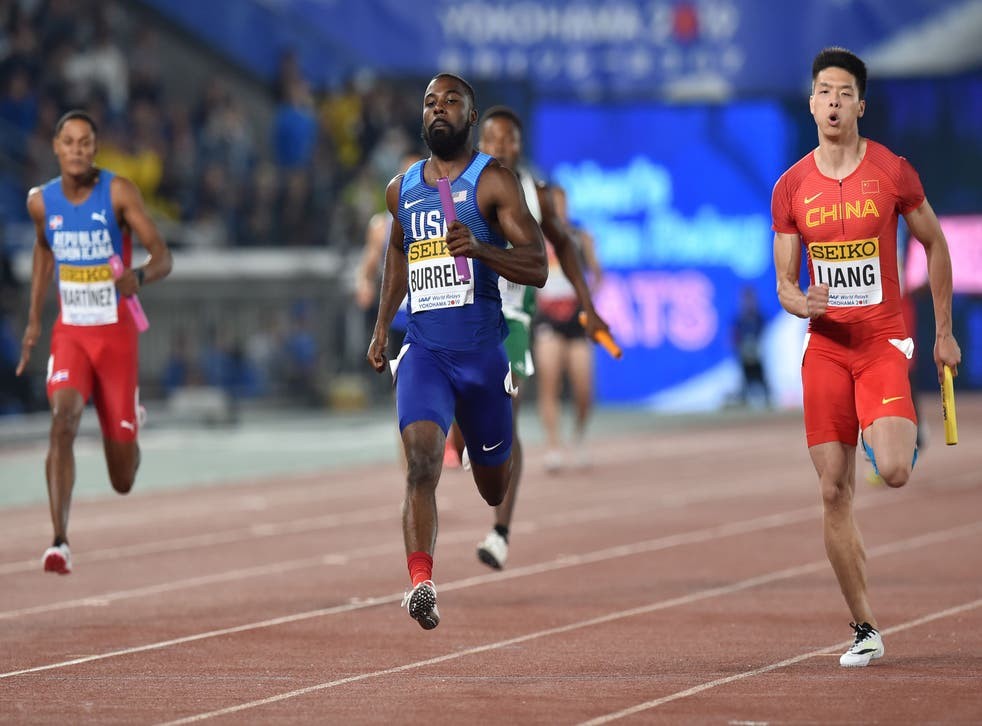
“My family is extremely saddened with the loss of our son, Cameron, last night,” Leroy said in a release on Tuesday. “We are going through profound sorrow and ask that all of our friends, extended University of Houston family and the track and field community in the US and abroad allow us to gather with our closest family and friends. We are profoundly grief stricken, and thank everyone for the outpouring of prayers and support.”
The cause of Burrell’s death has not been revealed, but medical records accessed by TMZ indicate he died in a parking garage. Further details surrounding the death remain unknown.
The University of Houston announced his death on Tuesday while describing him as one of the university’s best track and field athletes.
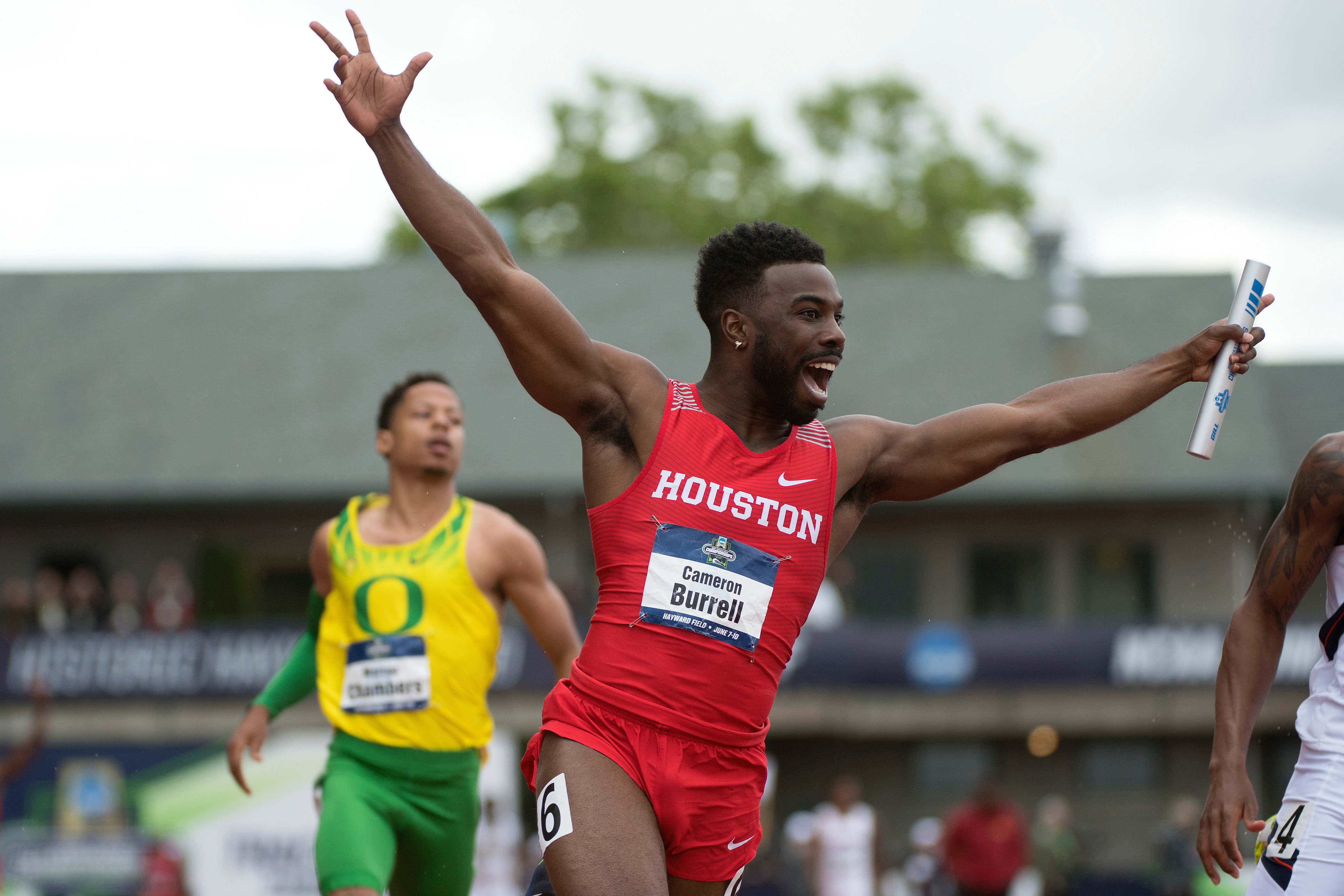
“Words cannot express how we feel for Leroy, Michelle and their family. Cameron grew up around the Houston Athletics Department, worked hard and developed himself into one of our greatest Track and Field stars,” university athletics director Chris Pezman said in a release.
“To lose him so suddenly is tragic. We ask all University of Houston and track and field fans to keep Coach Burrell and his family in their thoughts and prayers.”
The sudden demise of a budding professional athlete has shocked those around him. He was believed by many to be following in the footsteps of his father and his godfather Carl Lewis, a legendary track star and nine-time Olympic gold medalist.
Burrell was a member of the Houston Cougars track and field team from 2013-18. In the same season he equaled his father’s accomplishment, the Atlanta native ran the anchor leg for the Cougars in a 4x100m relay team event, successfully defending its NCAA championship.
by Shweta Sharma
Login to leave a comment
Dina Asher-Smith back to help 4x100m relay team set new British record at Tokyo Olympics
After tears and torment, Dina Asher-Smith could yet leave Tokyo with a gold medal after Britain’s 4x100m relay women ran the fastest heat at an Olympics, setting a national record in the process.
With Asha Philip, Imani-Lara Lansiquot and Daryll Neita also producing strong performances the British team crossed the line in 41.55sec – faster than the gold-medal-winning times at all but two editions of the Olympic Games. Asher-Smith, whose Olympic ambitions for the 100m and 200m were knocked off course by a hamstring tear in June, believes more is to come from her and the team.
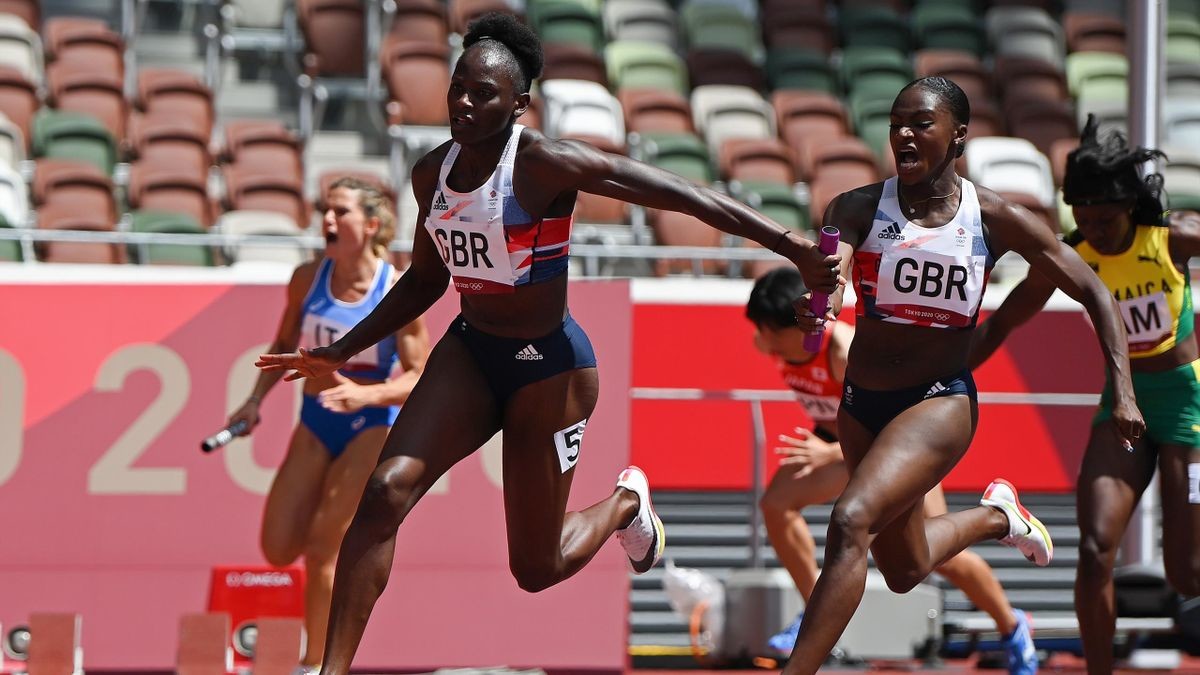
“After the 100m I did say there was no way I wasn’t going to be here for the 4x100m girls,” she said. “I only had one day off then my coach, John Blackie, had me back on the training track. Essentially, all I need is a few more weeks and sessions.
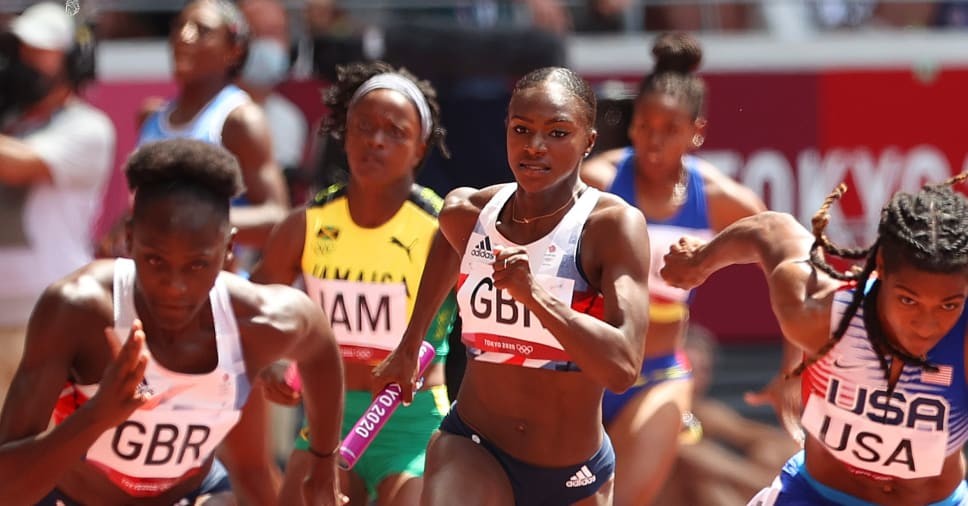
“He was saying if I had a few more days it would have been the 100m final, another week and it would have been 10.8. It’s one of those things where I’m chasing times. Give me a few more training sessions and I’ll be closer to where I’m used to being. There was no way I wasn’t going to be here.“But it is about me getting back on the training track and making sure I bring my absolute A game to this race.
“It would mean incredible things to everybody. We are the bronze medalists in Rio. It would be amazing for us to get another medal again, for all of us, for all of our lives, for all of our individual dreams and aspirations.”
Britain’s men also offered a glimmer of hope in what has been a disappointing Olympics in track and field by qualifying in second in their heat behind Jamaica in 38.02. With the US and South Africa bombing out, the men’s team of CJ Ujah, Zharnel Hughes, Richard Kilty, and Nethaneel Mitchell-Blake have set their sights high.
“We want nothing but gold,” said Kilty. “There is more in the tank. Easy, easy, no problem at all. We knew we were going to play it safe there.”
The US Olympic great Carl Lewis said the American team had done everything wrong as they came sixth in their heat in 38.10s.
“The passing system is wrong, athletes running the wrong legs and it was clear that there was no leadership,” said Lewis, who is now a coach at the University of Houston. “It was a total embarrassment, and completely unacceptable for a USA team to look worse than the Association of American University kids I saw.”
Login to leave a comment
Tokyo 2020 Olympic Games
Fifty-six years after having organized the Olympic Games, the Japanese capital will be hosting a Summer edition for the second time, originally scheduled from July 24 to August 9, 2020, the games were postponed due to coronavirus outbreak, the postponed Tokyo Olympics will be held from July 23 to August 8 in 2021, according to the International Olympic Committee decision. ...
more...Poland makes history with Olympic mixed 4x400m win
Poland’s first gold medal of the Tokyo Games came with a special bonus: a place in the Olympic history books.
Kajetan Duszynski raced to the front down the final straight and powered across the line to give his country the first gold medal in the inaugural Olympic mixed 4x400 relay on Saturday (31).
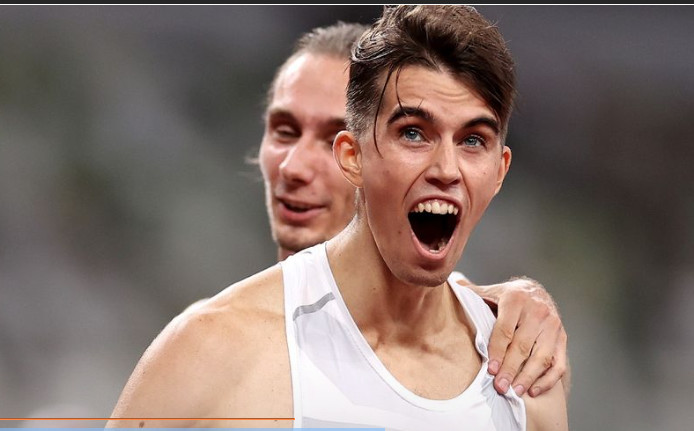

The Polish quartet of Karol Zalewski, Natalia Kaczmarek, Justyna Swiety-Ersetic and Duszynski clocked a European – and now Olympic – record of 3:09.87 to claim the title ahead of the Dominican Republic and the United States.
It was also Poland’s second Olympic gold in an athletics relay, coming 56 years after the Poles won the women’s 4x400m relay at the 1964 Games, which also happened to be held in Tokyo.
“We all believed we could manage to win the medal,” Zalewski said. “We were not sure if it was going to be gold or something else, but we knew that we could win something. We all left our hearts on the track.”
Duszynski, who ran the final leg in 44.38, held his arms outsretched wide as he crossed the line, then pulled his singlet over his head in celebration before being mobbed by his teammates.
"In the last 150 metres I felt I had a lot of strength still,” Dusynski said. “I'm that type of endurance athlete. It is my strength to run the first 200 metres slowly and then to attack towards the finish line. So I knew that I could make it. It's my strategy and it worked for me."
The Dominican Republic quartet of Lidio Andres Feliz, Marileidy Paulino, Anabel Medina Ventura and Alexander Oganda claimed the silver, with Paulino clocking a 48.7 split for her second leg. The bronze went to the US team of Trevor Stewart, Kendall Ellis, Kaylin Whitney and Vernon Norwood.
Oganda outleaned Norwood at the line to clinch the silver in 3:10.21, just 0.1 ahead of the US.
“It is so exciting to come here and run the first mixed relay at the Olympic Games, and to come out with a medal feels great,” Ellis said. “It feels like a win for us."
The race capped an eventful 24 hours for the US and Dominican teams. They had been disqualified after the qualifying rounds on Friday but were reinstated on appeal in time for the final.
The USA replaced their lineup from the heats, which was made up of Lynna Irby, Taylor Manson, Bryce Deadmon and Elija Godwin. The members of Saturday’s team said the controversy over the disqualification and reinstatement should not take away from their bronze-medal performance.
“It was events outside our control and we as a team stand behind our teammates and the United States, who we are proud to represent and bring home a medal for us,” Whitney said.
The mixed relay made its Olympic debut two years after being contested at the World Athletics Championships for the first time in Doha.
While teams can choose any order they want for the relay, all teams in Tokyo opted for the conventional order of man-woman-woman-man.
The Dominicans built up a large lead on the third lap until 21-year-old Dutch 400m and 400m hurdles star Femke Bol reeled them in going into the anchor leg.
Duszynski timed his kick perfectly, surging to the front after the final turn and pulling away down the home stretch. Norwood moved into second place and seemed poised to secure the silver for the US but was edged out by Oganda on the lean.
The US team did not include Allyson Felix, who had helped the USA win the mixed relay in Doha and was eligible to run the event in Tokyo.
It means that Felix, competing in her fifth Olympics at the age of 35, will have to wait a bit longer to bid for her 10th career medal. That would make her the most decorated woman in Olympic athletics history and equal Carl Lewis for the most medals by a US track and field athlete.
Felix, who holds six gold and three bronze medals, will run in the 400m and possibly the women's 4x400m relay.
by World Athletics
Login to leave a comment
Tokyo 2020 Olympic Games
Fifty-six years after having organized the Olympic Games, the Japanese capital will be hosting a Summer edition for the second time, originally scheduled from July 24 to August 9, 2020, the games were postponed due to coronavirus outbreak, the postponed Tokyo Olympics will be held from July 23 to August 8 in 2021, according to the International Olympic Committee decision. ...
more...McLaughlin smashes world 400m hurdles record in Eugene with 51.90 and other highlights
In a culture saturated by so many other sports, those in the USA fret about who can be the face of athletics.
Who can be featured on television news? Who can be a crossover figure like gymnast Simone Biles? Who can be a Carl Lewis or a Jackie Joyner-Kersee?
As the 10-day US Olympic Trials closed on Sunday night (27) in Eugene, Oregon, there was a deep reservoir of young candidates – none more so than Sydney McLaughlin. The 21-year-old became the first woman to break the 52-second barrier in the 400m hurdles.
Record temperatures approaching 44C delayed the programme by five hours, but there was no delaying the inevitable: McLaughlin was going to break the world record, and she did so with her time of 51.90.
“I definitely saw it coming,” said Dalilah Muhammad, the world and Olympic champion. “She looked so good in the rounds.”
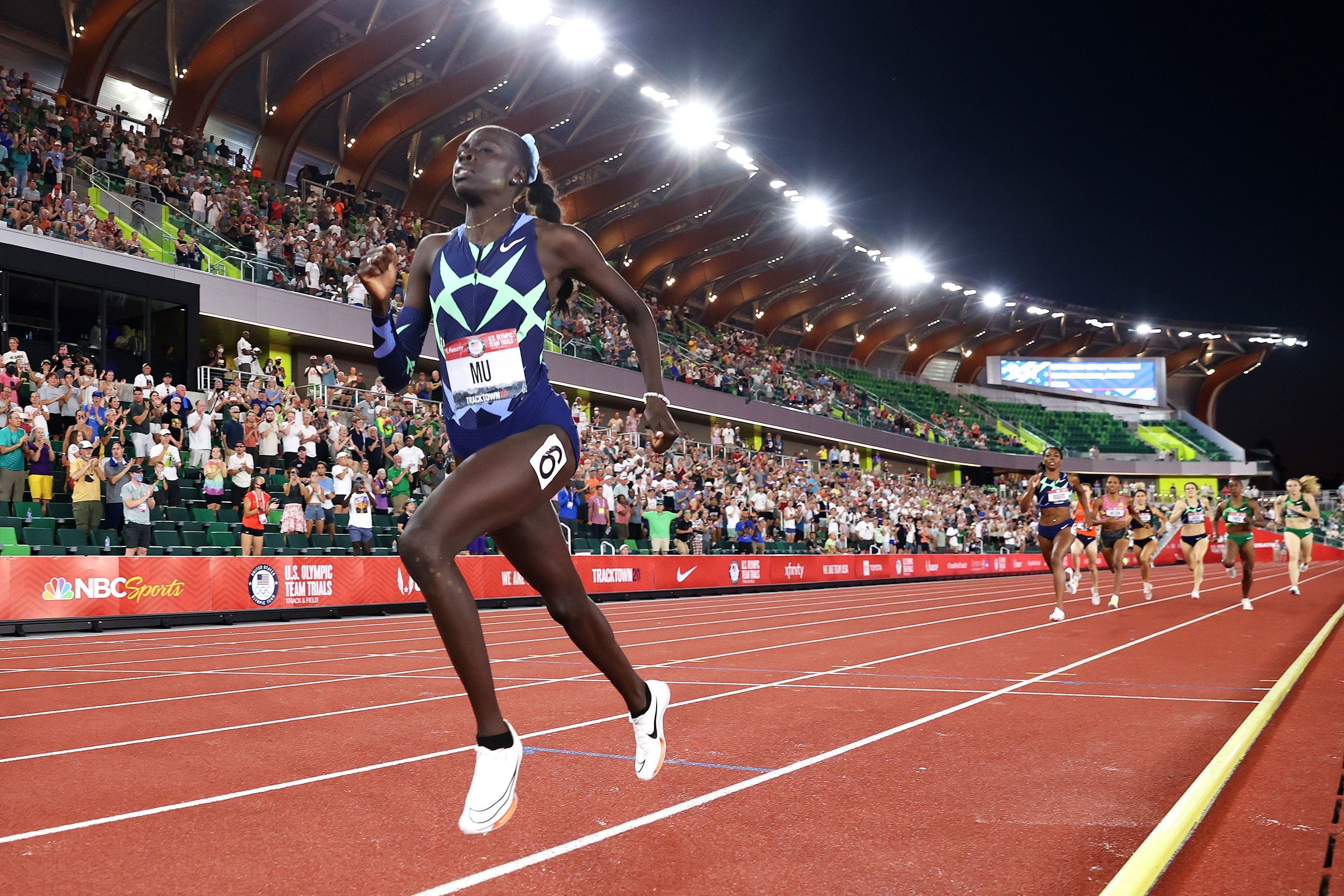
McLaughlin’s time broke the record of 52.16 set by Muhammad at the World Athletics Championships Doha 2019. McLaughlin, second in that race in 52.23, pulled away from Muhammad over the final two hurdles in Eugene.
Even with 2020 lost to the pandemic, the world record has been broken three times in 23 months – twice by Muhammad, once by McLaughlin.
That was the highlight of another historic day of young record-breakers. The trials ended with 11 world-leading marks, five by men and six by women.
Athing Mu, 19, set a trials record in the 800m; Cole Hocker, 20, became the youngest men’s 1500m champion in 110 years; JuVaughn Harrison, 22, became the first to make the US team in the high jump and long jump since Jim Thorpe in 1912; Noah Lyles, 23, ran a world-leading 200m, and Erriyon Knighton, 17, again lowered the world U20 record in the 200m.
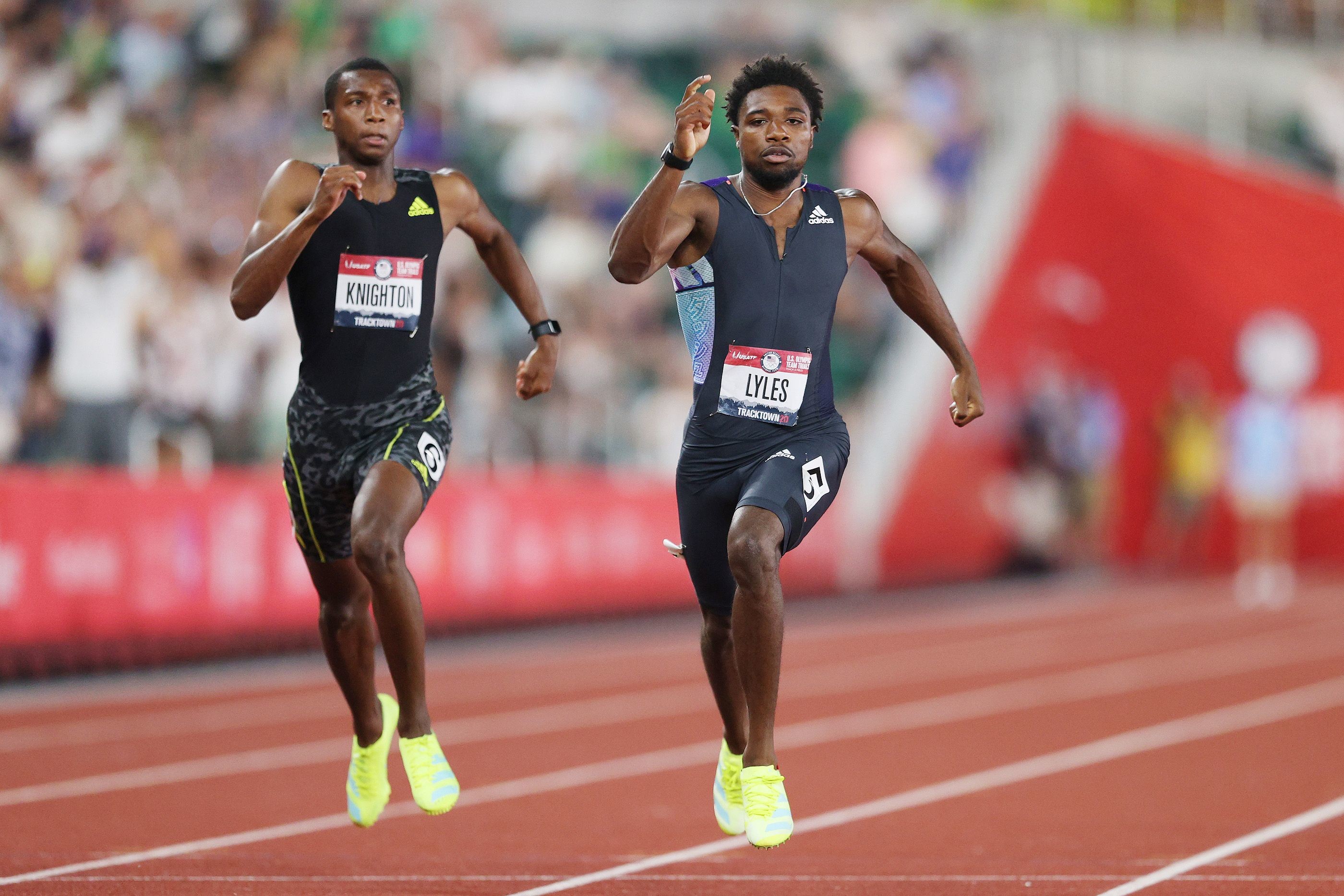
McLaughlin has been projected as the sport’s face in the United States since she made an Olympic team at age 16. After one college season at Kentucky, she turned professional.
“I was growing into my own person,” she said. “My faith is the biggest change. Trusting God and knowing He will carry me through.”
Her record-setting might not be over. Not only could McLaughlin lower her world record at the Tokyo Olympics, she should be named to the 4x400m relay team that could set one – though that mark (3:15.17) is arguably a much bigger ask.
McLaughlin trains in Los Angeles under Bobby Kersee, who also coached Joyner-Kersee.
“Bobby knows how to put things together when the time comes,” McLaughlin said.
Muhammad, who over the past 12 months has had to contend with injuries and a bout of Covid-19, finished second in 52.42, the third-fastest time of her career. NCAA champion Anna Cockrell took the third spot in 53.70, nearly a full second faster than her previous PB, in beating Shamier Little (53.85). Olympic bronze medallist Ashley Spencer stumbled over an early hurdle and finished seventh.
Likely to join McLaughlin in that 4x400m team is Mu, considering earlier this month she set a collegiate record of 49.57 – faster than the winning mark at the USA Trials.
Mu ran a world-leading 1:56.07 to win the 800m, breaking her own North American U20 record. World silver medallist Raevyn Rogers was second in a PB of 1:57.66 and US record-holder Ajee Wilson third in 1:58.39. Not until late did Wilson overtake Michaela Meyer, who was fourth in 1:58.55.
Mu sat in the pack for the first lap, passing through 200m in 27.54 and 400m in a swift 57.53. She then made her move on the second lap, positioning herself at the front with 200 metres to go. She kicked hard as she came off the final bend and, having covered the final lap in 58.54, crossed the line almost two seconds ahead of her nearest opponent.
In the men's 1500m, Hocker was in sixth place with about 150 metres left but used a closing rush to overtake Olympic champion Matthew Centrowitz, 3:35.28 to 3:35.34.
Yared Nuguse, 22, was third in 3:36.19, overtaking the most recent national champion, Craig Engels, who is also this year’s fastest US man (3:33.64).
Hocker put a finger to his lips past the finish as if to shush critics. An “in-the-moment thing”, he said.
“Last year I wasn’t at this level. I was nowhere near this level,” he said. “This whole year, I felt like I was proving myself to the world, but also proving my talent to myself. There’s a lot of negative talk out there, and I wanted to silence everyone.”
Hocker has not met the 3:35 Olympic standard but has a world ranking that looks sufficient to secure his spot on the US team.
He is the youngest US Olympian in the men’s 1500m since Marty Liquori, then 19, in 1968. And he is the youngest national champion in the men’s 1500 or mile since 1911, when Abel Kiviat won a few days after turning 19.
Hocker has run 23 races since 29 January. Thirteen were PBs. Of the 10 others, eight were prelims and one an NCAA indoor title.
“I’m impressed that he’s been able to do that since January and is showing no signs of letting up,” said Centrowitz.
Harrison won the high jump at 2.33m, beating Darryl Sullivan on countback. Olympic medallist Erik Kynard was fourth.
The delay allowed Harrison more rest for the long jump, in which he jumped a PB of 8.47m, completing the best ever one-day jumps double.
“It just gave my legs more time to recover and gave me a chance to eat something,” Harrison said. “I was ready to go earlier, even though they said it was too hot.”
Marquis Dendy, the 2016 world indoor champion, was second at 8.38m and Steffin McCarter third with 8.26m. Olympic champion Jeff Henderson was sixth with 8.08m, meaning he won’t defend his title in Tokyo.
In a competition that showcased newcomers, it was appropriate that the last athlete to secure an Olympic berth was Knighton. He is the youngest man on the US team since Jim Ryun in 1964.
World champion Lyles won the 200m in a world-leading 19.74, followed by Kenny Bednarek, 19.78, and Knighton, 19.84. Knighton broke his own world U20 record of 19.88 from Saturday’s semifinals. He set a world U18 record of 20.04 in Friday’s first round, then twice broke that.
Lyles was fourth in the 200m at the 2016 trials as an 18-year-old.
“Ever since then, the mind-set of being an Olympian has been on my mind,” said Lyles. “Having the pause on 2020 has probably been my hardest yet. I don’t think anyone can prepare you for the lion you have to slay at the Olympic Trials.”
In the heptathlon, the year’s top three scores were posted by Annie Kunz (6703), Kendall Williams (6683) and Erica Bougard (6667). Kunz, whose previous best was 6153, did not have the Olympic standard until this week.
Kunz broke or was close to her PBs in all seven disciplines. She started with a marginally wind-assisted 12.95 in the 100m hurdles and followed it with 1.81m in the high jump, an outdoor PB. She then threw 15.73m in the shot put, which moved her into the lead overall – a position she maintained after clocking a PB of 23.71 in the 200m to end the first day at the top of the leader board.
She started the second day with a huge PB of 6.50m in the long jump, but briefly relinquished her lead after the javelin (45.06m). Kendell Williams, who ended the first day in third place, was having a strong second day with marks of 6.73m in the long jump and 47.41m in the javelin. It meant Williams went into the final event with a two-point lead over Kunz.
But Kunz ensured she stayed ahead of Williams in the 800m, eventually clocking 2:15.24 to retake the lead with a score of 6703, moving to fifth on the US all-time list. Williams, who finished second with a PB of 6683, is now sixth on that list.
Taliyah Brooks, in fourth place through five events, had to withdraw because of the heat.
“I have grown immensely since 2019,” said Kunz, who finished 13th at the 2019 World Championships. “It feels like the sky’s the limit now.”
The men’s 5000m, held in the morning to escape the worst of the heat, was won by Olympic silver medallist Paul Chelimo. He gradually veered from the rail to inside of lane four to force out Bowerman Track Club’s Grant Fisher and Woody Kincaid.
Chelimo was first in 13:26.82, followed by Fisher (13:27.01) and Kincaid (13:27.13). Their respective closing laps were 52.83, 52.99 and 52.74. Cooper Teare was fourth in 13:28.08 off a 53.97 last lap.
Fisher and Kincaid became the first pair to finish in the top three of 5000m and 10,000m at the same US Trials. Qualifying in both had been done previously, but never two at the same trials.
by World Athletics
Login to leave a comment
No Millrose Games in 2021 due to the coronavirus pandemic
The iconic meet had been scheduled to take place on February 13.
The 2021 Millrose Games has been cancelled due to the coronavirus pandemic.
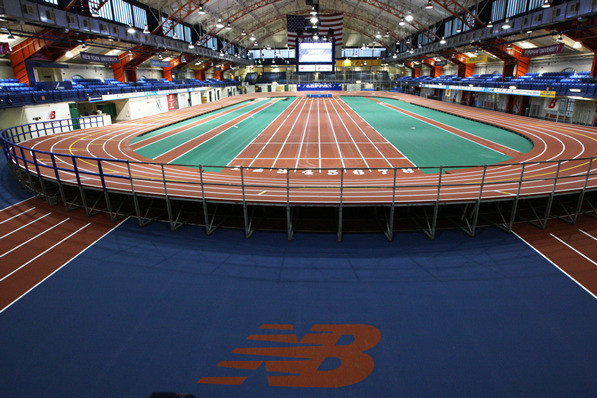
The 114th edition of the iconic meeting, which was first held in 1908, had been scheduled to take place on Saturday February 13 at The Armory in New York City.
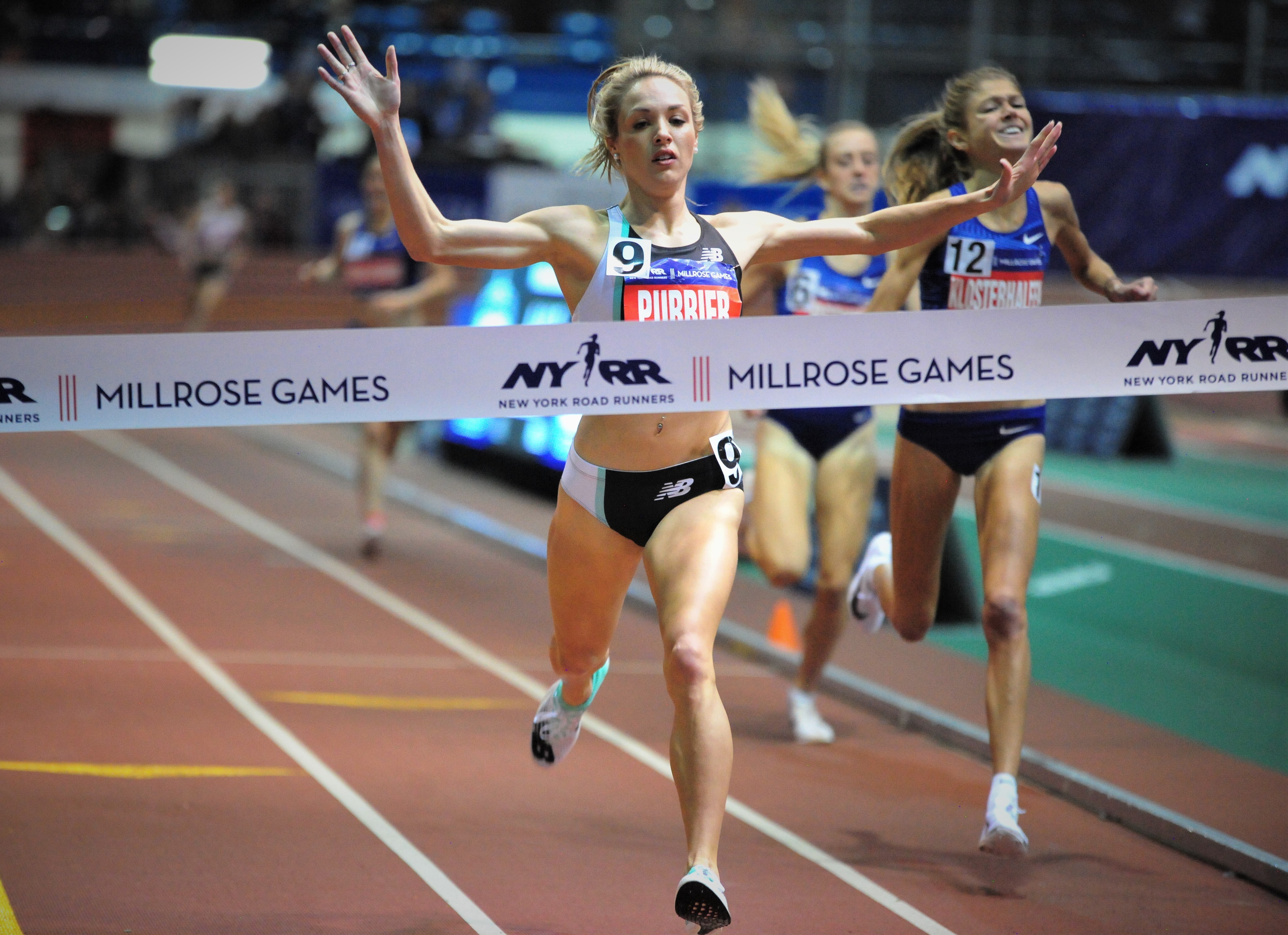
But the event will now return on February 12, 2022.
“The Armory Foundation has decided after extensive consultations with health experts that, due to rising cases nationally of Covid-19, it is advisable to cancel the 114th Millrose Games, previously scheduled for February 13, 2021 at The Armory in New York City,” reads a press release.
“First run in 1908, the Millrose Games has featured legends such as Paavo Nurmi, Eamonn Coghlan, Allyson Felix, Joetta Clark, Carl Lewis, Jackie Joyner-Kersee, Bernard Lagat and many others. However, given the health situation in New York and across the country, the prudent thing to do is to abstain this coming year.”
Britain’s Chris O’Hare (pictured) is a Millrose Games regular, with the multiple European medallist having won the famous Wanamaker Mile in both 2018, when he became the first British man to win the prestigious indoor race since John Whetton in 1965, and in 2020.
Meet director Ray Flynn said: “Canceling the iconic Millrose Games was a very difficult decision, but with all the health concerns surrounding an event of this complexity, rather than risking the athletes, officials, meet personnel, media and others, we have decided to wait until February 12, 2022, for the next edition of the Millrose Games."
by Athletics Weekly
Login to leave a comment
NYRR Millrose Games
The Pinnacle of Indoor Track & Field The NYRR Millrose Games, first held in 1908, remains the premier indoor track and field competition in the United States. The 2025 edition will once again bring the world’s top professional, collegiate, and high school athletes to New York City for a day of thrilling competition. Hosted at the New Balance Track &...
more...World long jump record-holder and two-time world champion Mike Powell has been named an ambassador for the IAAF World Athletics Championships Doha 2019
With three weeks to go to the IAAF's premiere showcase event, set for Sept 27 to Oct 6, Powell said he can't wait for action to get underway at the Qatari capital's state-of-the-art Khalifa Stadium.
"I’m very excited to be attending my 11th World Championships: three of those as an athlete and eight as an IAAF Ambassador," said Powell, whose appearance at the 1991 edition in Tokyo, his first at a World Championships, resulted in one of the most legendary long jump competitions of all time.
In Tokyo, Powell prevailed in a classic head-to-head brawl against long-time rival Carl Lewis, sailing 8.95m in the fifth round to break Bob Beamon's vaunted 8.90m world record, set nearly 23 years earlier at the 1968 Olympic Games in Mexico City. Powell's record has now stood even longer, passing the test of time. He successfully defended his title two years later in Stuttgart and took bronze in 1995, his final appearance at the World Championships.
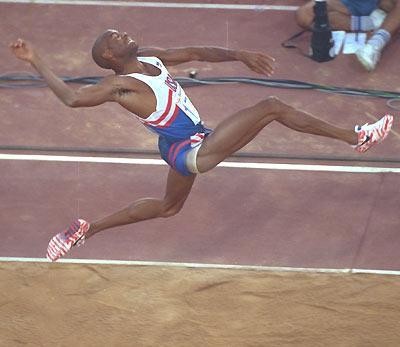
In the ensuing 28 years since he broke the world record, only two jumpers have come within 21 centimetres of his mark: Erick Walder in 1994 and Dwight Phillips in 2009, when they sailed 8.74m.
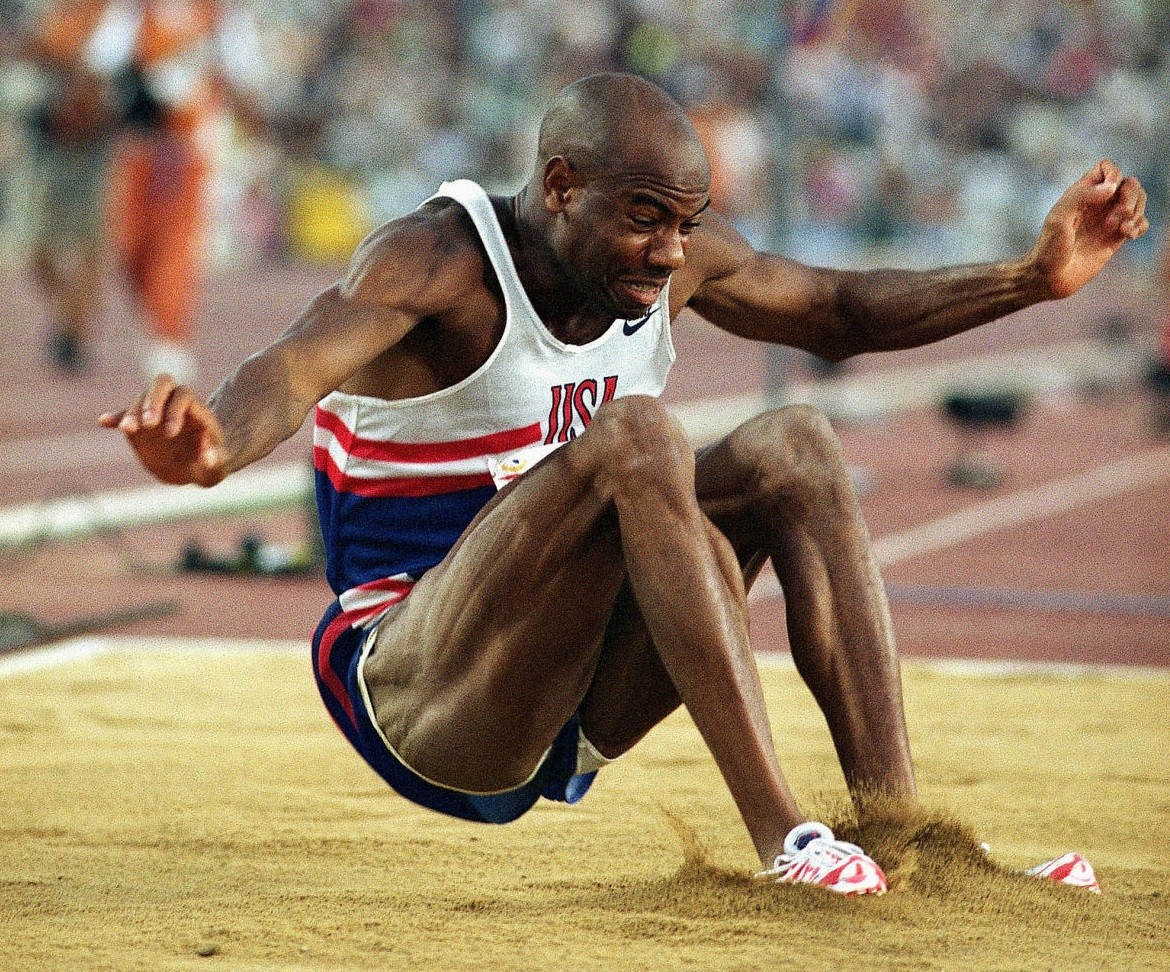
But over the past 15 months, Cuban sensation Juan Miguel Echevarria has electrified the event with wind-assisted jumps of 8.92m (+3.9m/s) and 8.83m (+2.1m/s), performances produced before he celebrated his 21st birthday, illustrating that he could be the jumper to finally unseat Powell as the event's standard-bearer.
"I’m obviously looking forward to the long jump as Echevarria has said that he may be going for my record after his impressive showing in Zurich of 8.65m," Powell said.
"But also, the 400m hurdles, both men and women, the 200m, the 400m. There are so many things to follow, I can’t wait!"
Powell joins multiple world and Olympic decathlon champion Ashton Eaton and Brianne Theisen-Eaton, the 2016 world indoor pentathlon champion, as an ambassador for the championships' 17th edition.
by IAAF
Login to leave a comment
IAAF World Athletics Championships Doha
The seventeenth edition of the IAAF World Championships is scheduled to be held between 27 September and 6 October 2019 in Doha, Qatar at the renovated multi-purpose Khalifa International Stadium. Doha overcame bids from Eugene, USA, and Barcelona, Spain to be granted the rights to host the 2019 IAAF World Championships in Athletics. Having hosted the IAAF Diamond League, formerly...
more...

